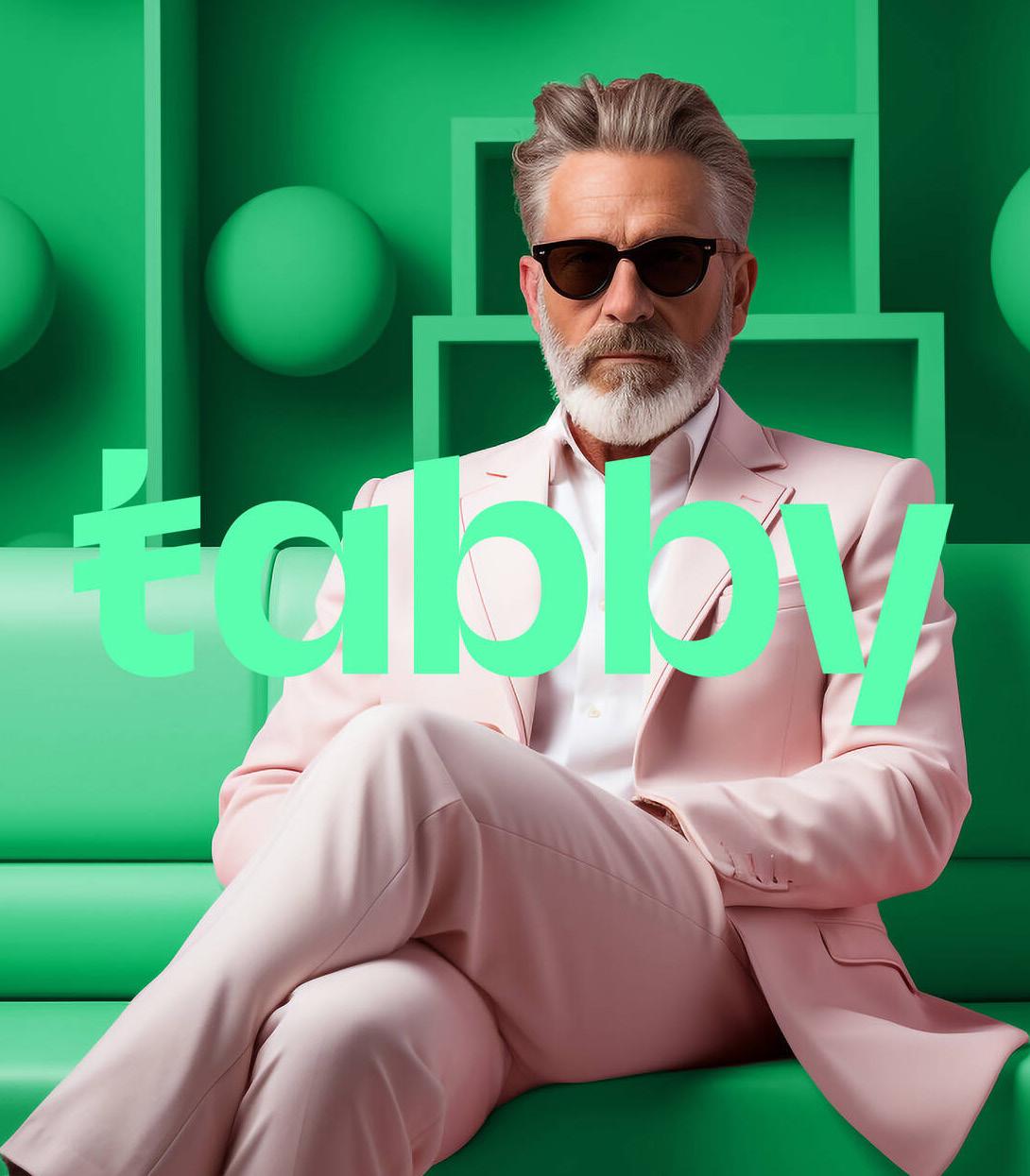

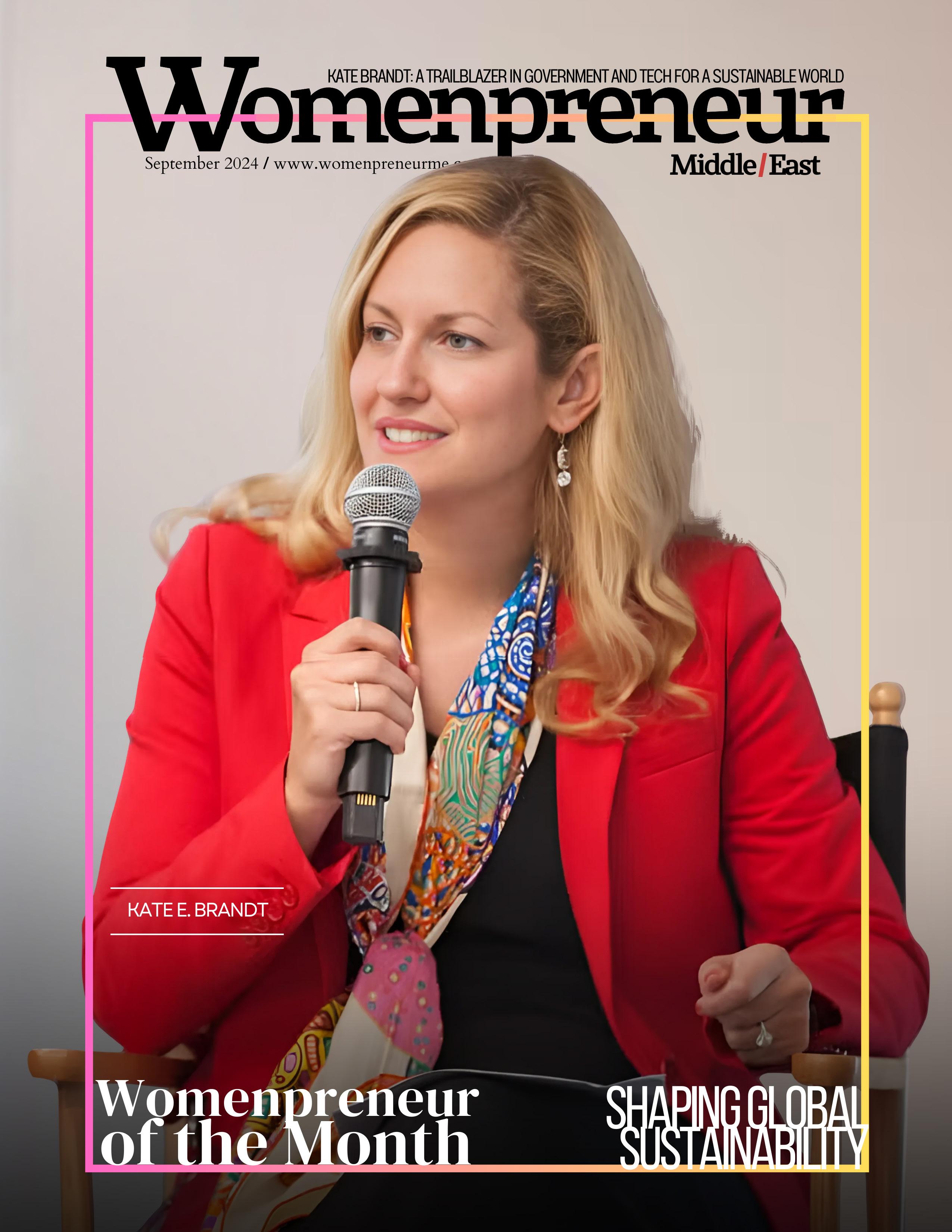












FOUNDER & CEO
Vivek Malik
COO (CHIEF OPERATING OFFICER)
Divesh Singh
MEDIA DIRECTOR & CFO
Afreen Sheikh
CREATIVE DIRECTOR
Sumayra Farooki
MAKE-UP
EDUCATION & DEVELOPMENT COACH
Ayesha Seedat
MANAGING EDITORS
Bhavna Batra, Shivani Gera
Anastasia N, Afshan Abdul Aziz
Beena Yusuf
PARTNERING AGENCIES
Big Data Marketers, Reputique PR
CEO Media Groups, Global Fame Verified
Womenpreneur Media Group
MEDIA ASSISTANTS
Neha Kundu, Anjali M
DESIGN AND LAYOUT
Nitij Sharma, Priyanka Yadav
PUBLISHER
Firstread Media LLC
Dear Awesome Readers,
Welcome to this special edition of Womenpreneur Magazine, where we spotlight a transformative and vital force shaping our future: sustainability. This issue is dedicated to exploring how women around the world are leading the charge in creating a more sustainable and equitable planet. As we navigate through these pages, you will find stories of resilience, innovation, and dedication from women who are not just participating in the sustainability movement but are at its helm, driving change across various sectors.
In recent years, the global conversation on sustainability has shifted from an abstract ideal to a pressing reality, and women have emerged as pivotal players in this dialogue. From grassroots initiatives to boardroom strategies, women are leveraging their expertise, passion, and leadership to address some of the most pressing environmental and social challenges of our time. This edition is a testament to their impactful work and a celebration of their contributions.
Our focus on women in sustainability highlights how these leaders are redefining what it means to be a steward of the planet. They are tackling issues like climate change, resource management, and social equity with innovative solutions and unwavering commitment. These stories are not just about individual achievements but about the collective progress toward a future where sustainability is not a choice but a necessity.
In the pages that follow, you will read about women who are pioneering new technologies and business models that prioritize environmental health. They are reshaping industries to be more responsible and sustainable, pushing for systemic change, and advocating for policies that protect both people and the planet. Their efforts are creating ripple effects that extend far beyond their immediate spheres of influence, inspiring others to follow suit and amplifying the impact of their work.
We also delve into the challenges these women face and how they overcome them. The journey towards sustainability is fraught with obstacles, from navigating regulatory landscapes to addressing entrenched industry practices. Yet, it is precisely these challenges that drive innovation and fuel their resolve. Their stories serve as powerful reminders that change is possible and that every effort counts in the grand scheme of building a sustainable future.
As you explore this edition, we encourage you to reflect on how these remarkable women are shaping the future of sustainability. Their work embodies the intersection of passion and pragmatism, demonstrating that sustainable practices can drive both environmental stewardship and economic growth. They are paving the way for a new era where sustainability is integral to business strategy, community development, and personal choices.
Our hope is that this edition not only informs but also inspires. Let the stories of these women motivate you to think about how you can contribute to a more sustainable world, whether through your professional endeavors, personal choices, or community involvement. Sustainability is a journey that requires collective action, and every step, no matter how small, contributes to a larger movement.
Thank you for joining us in celebrating these extraordinary women and their crucial role in the sustainability movement. Their achievements remind us that with vision, determination, and collaboration, we can create a future that is not only sustainable but also inclusive, equitable, and thriving for generations to come.
Enjoy the read!
Sincerely,
Bhavna Batra Managing Editor Womenpreneur ME


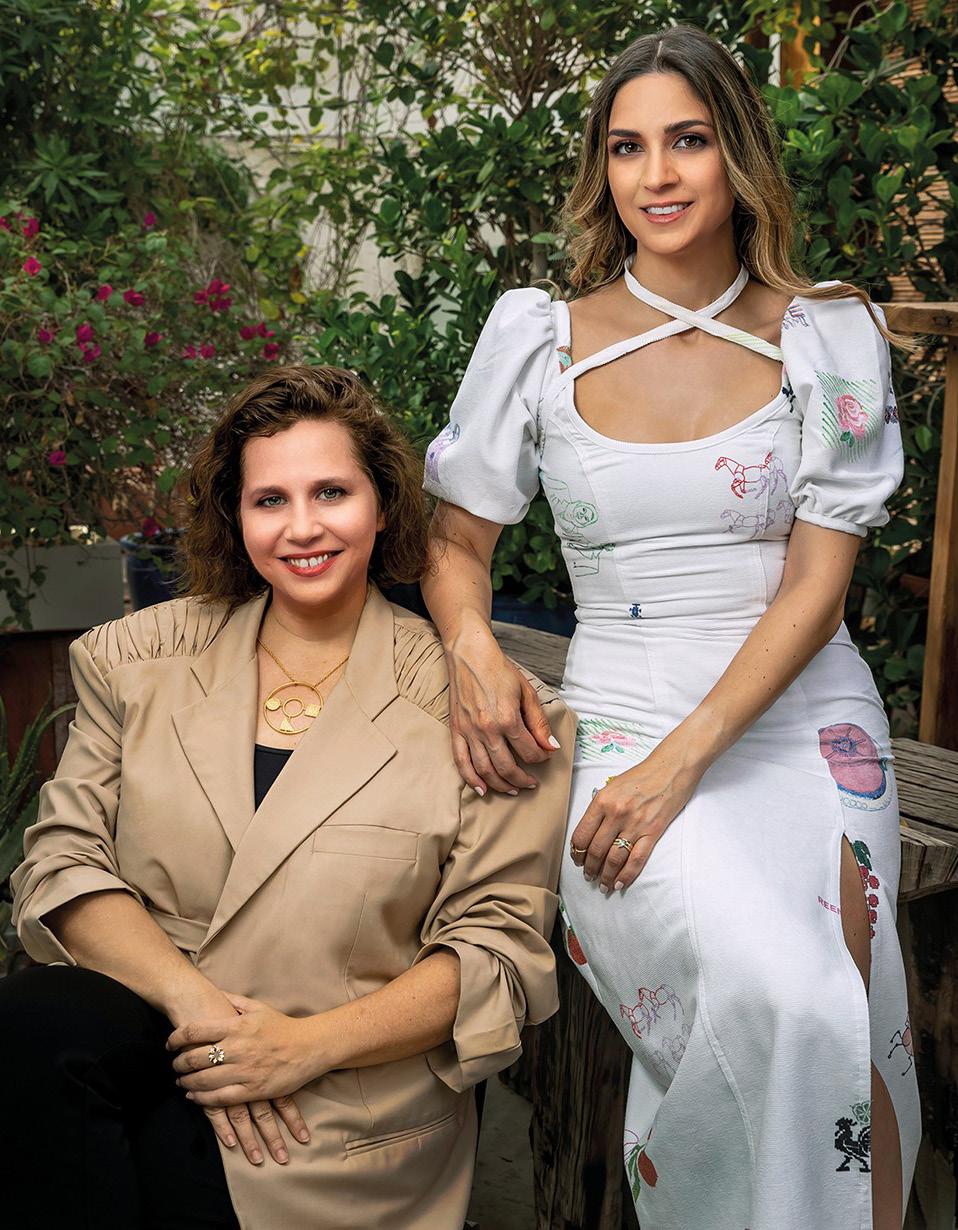
In an era marked by environmental degradation, climate change, and resource depletion, the role of governments in promoting sustainability has become increasingly vital.

Welcome to the Sustainability Issue of Womenpreneur Middle East, a special edition that celebrates the remarkable women shaping the future of our planet.
Welcome to the Sustainability Issue of Womenpreneur Middle East, a special edition that celebrates the remarkable women shaping the future of our

In a rapidly changing world where the impacts of climate change are becoming increasingly evident, Sara AlAmeri stands out as a remarkable figure from the United Arab Emirates.
Lamis Al Hashimy, an Emirati entrepreneur and co-founder of Palmade, has emerged as a trailblazer in the field of sustainable innovation. Her journey from a finance professional to an eco-entrepreneur is a testament to her dedication to environmental sustainability.
The aisles of mega-supermarkets are often overwhelming, with endless rows of plastic bottles filled with various cleaning products.





In the midst of a global pandemic, as the world reeled from the impacts of COVID-19, two visionary women embarked on a journey that would transform not only their lives but also the environmental landscape of the United Arab Emirates.
As the world shifts towards more sustainable practices, the MENA region is witnessing a remarkable transformation led by innovative platforms like Sustynable.
The fashion industry, often associated with creativity, innovation, and glamor, has a darker side that significantly impacts the environment. From resource-intensive production processes to the massive waste generated by fast fashion.
In the 21st century, the global conversation about health and sustainability has become more intertwined than ever. The intersection of human health and sustainability represents a holistic approach to well-being
In recent years, Environmental, Social, and Governance (ESG) investing has emerged as a transformative force in the world of finance

In an era marked by environmental degradation, climate change, and resource depletion, the role of governments in promoting sustainability has become increasingly vital. As stewards of public welfare, governments hold the unique power to shape policies, create frameworks, and incentivize behaviors that align with sustainable development goals. This responsibility is not just a matter of environmental preservation but also one of economic stability, social equity, and intergenerational justice. By implementing sustainable practices and policies, governments can ensure that the needs of the present are met without compromising the ability of future generations to meet their own needs.
1. Policy and Legislation: Building the Foundation for Sustainable Development
Governments play a crucial role in enacting laws and policies that set the framework for sustainable practices across various sectors. Environmental regulations, such as the Clean Air Act, the Clean Water Act, and the Endangered Species Act in the United States, are prime examples of how legislation can protect natural resources and biodiversity. By establishing clear guidelines and standards, governments can limit harmful emissions, regulate waste management, and promote the conservation of ecosystems.
Moreover, governments can drive sustainability through economic policies that incentivize green practices. For instance, carbon pricing, in the form of carbon taxes or cap-and-trade systems, encourages companies to reduce their greenhouse gas emissions by attaching a cost to pollution. This not only motivates businesses to innovate and adopt cleaner technologies but also generates revenue that can be reinvested in sustainable projects.
2. Promoting Renewable Energy and Green Technologies
Transitioning to renewable energy sources is a key component of any sustainability
strategy, and governments have a pivotal role to play in this transformation. Through subsidies, tax incentives, and research and development funding, governments can accelerate the adoption of clean energy technologies such as solar, wind, and hydropower. Countries like Germany have successfully implemented policies that have made renewable energy a significant part of their energy mix. The German Renewable Energy Sources Act, for instance, provides incentives for renewable energy production, leading to a substantial increase in the share of renewables in the country’s energy consumption.
Furthermore, governments can promote energy efficiency by setting standards for appliances, buildings, and vehicles. Programs like the Energy Star initiative in the United States and the European Union’s Energy Efficiency Directive have been instrumental in reducing energy consumption and greenhouse gas emissions. By mandating energy efficiency, governments can help reduce the overall demand for energy and decrease reliance on fossil fuels.
Sustainable urban planning is essential for creating cities that can accommodate growing populations while minimizing environmental impact. Governments can promote sustainability through policies that encourage the development of green infrastructure, such as public transportation systems, energy-efficient buildings, and waste recycling facilities. For example, cities like Copenhagen and Singapore have become global leaders in sustainable urban planning by prioritizing green spaces, cycling infrastructure, and efficient public transit systems.
Additionally, governments can implement zoning regulations that promote sustainable land use. By encouraging higher-density development and mixed-use neighborhoods, governments can reduce urban sprawl, which in turn decreases the need for transportation and lowers carbon
emissions. Sustainable urban planning also involves addressing the social dimensions of sustainability, such as ensuring affordable housing and access to essential services for all citizens.

Agriculture is both a driver of environmental degradation and a sector highly vulnerable to climate change. Governments must promote sustainable agricultural practices to ensure food security and environmental health. This can be achieved through policies that support organic farming, agroforestry, and sustainable water management. The European Union’s Common Agricultural Policy (CAP) has been a critical tool in promoting environmentally friendly farming practices, such as crop rotation, soil conservation, and the reduction of chemical inputs.
In addition to supporting sustainable agriculture, governments can address food waste, which is a significant contributor to greenhouse gas emissions. Policies that encourage the reduction, recovery, and recycling of food waste can help minimize the environmental impact of the food system. For example, France has implemented legislation that requires supermarkets to donate unsold food to charities, significantly reducing food waste and supporting those in need.
While national policies are essential, sustainability is a global issue that requires international cooperation. Governments play a critical role in global climate negotiations, such as the Paris Agreement, which aims to limit global warming to well below 2 degrees Celsius. By committing to international agreements and collaborating with other nations, governments can amplify their efforts to combat climate change and promote sustainability on a global scale.
In addition to formal agreements, governments can engage in knowledgesharing and capacity-building initiatives that help developing countries adopt sustainable practices. For instance, the United Nations’ Sustainable Development Goals (SDGs) provide a framework for governments to work together in addressing global challenges such as poverty, inequality, and environmental degradation. Through diplomacy, financial assistance, and technology transfer, governments can support the transition to sustainable development worldwide.
Governments also have a vital role in raising public awareness and educating citizens about sustainability. Public engagement campaigns, environmental education programs, and community initiatives can foster a culture of sustainability and encourage individuals to adopt eco-friendly behaviors. For example, governments can promote recycling programs, energy conservation, and sustainable transportation options through public awareness campaigns.
In addition to education, governments can empower citizens to participate in decisionmaking processes related to sustainability. By involving communities in the planning and implementation of sustainable projects, governments can ensure that policies are more effective and aligned with local needs. Participatory governance models, such as citizen assemblies and public consultations, can enhance the legitimacy and accountability of sustainability initiatives.
While the role of governments in promoting sustainability is critical, it is not without challenges. Political will, economic constraints, and conflicting interests can hinder the implementation of sustainable
policies. For example, the transition away from fossil fuels can face resistance from industries that are heavily reliant on nonrenewable energy sources. Additionally, balancing short-term economic growth with long-term sustainability goals can be a difficult task for governments, especially in developing countries.
However, these challenges also present opportunities for innovation and leadership. Governments can leverage emerging technologies, such as artificial intelligence and blockchain, to enhance sustainability efforts. For example, AI can optimize energy use in smart cities, while blockchain can improve transparency in supply chains. By embracing innovation and adopting forwardthinking policies, governments can navigate the complexities of sustainability and drive positive change.

Germany’s Energiewende: Germany’s Energiewende (Energy Transition) is a comprehensive policy initiative aimed at transforming the country’s energy system to be more sustainable and less dependent on nuclear and fossil fuels. The German government has set ambitious targets for renewable energy production, energy efficiency, and carbon reduction. Through a combination of feed-in tariffs, subsidies, and regulations, Germany has become a global leader in renewable energy, particularly in wind and solar power. The Energiewende has also fostered innovation in energy storage and grid management.
Costa Rica’s Renewable Energy Program: Costa Rica is a small country with a big commitment to sustainability. The
government has implemented policies that prioritize renewable energy, with a focus on hydroelectric, geothermal, and wind power. As a result, Costa Rica generates over 98% of its electricity from renewable sources. The country’s success in renewable energy has been driven by strong government support, public-private partnerships, and a commitment to environmental conservation. Costa Rica’s goal is to achieve carbon neutrality by 2050.
Sweden’s Green Tax Shift: Sweden has implemented a green tax shift, which involves increasing taxes on environmentally harmful activities while reducing taxes on labor and income. This policy encourages businesses and individuals to adopt more sustainable practices by making environmentally friendly choices more economically viable. The green tax shift has been successful in reducing carbon emissions, promoting renewable energy, and encouraging energy efficiency. Sweden’s government has also set ambitious goals for achieving a fossil-free transportation system by 2030.
Singapore’s Sustainable City Planning: Singapore is known for its forwardthinking approach to urban planning and sustainability. The government has implemented a range of policies to promote green building, energy efficiency, and sustainable transportation. Initiatives such as the Green Mark certification for buildings and the development of eco-friendly public housing have made Singapore a global model for sustainable urban development. The government has also invested in water management technologies, such as desalination and water recycling, to ensure a reliable and sustainable water supply.

Bhutan’s Gross National Happiness (GNH) Framework: Bhutan’s GNH framework prioritizes environmental conservation as a key component of national development. The government has implemented policies to maintain the country’s carbonnegative status, protect biodiversity, and promote sustainable agriculture. Bhutan’s commitment to sustainability is evident in its constitutional mandate to preserve at least 60% of its land under forest cover. Additionally, the government has focused on renewable energy, particularly hydropower, which not only meets the country’s energy needs but also generates revenue through exports to neighboring countries.
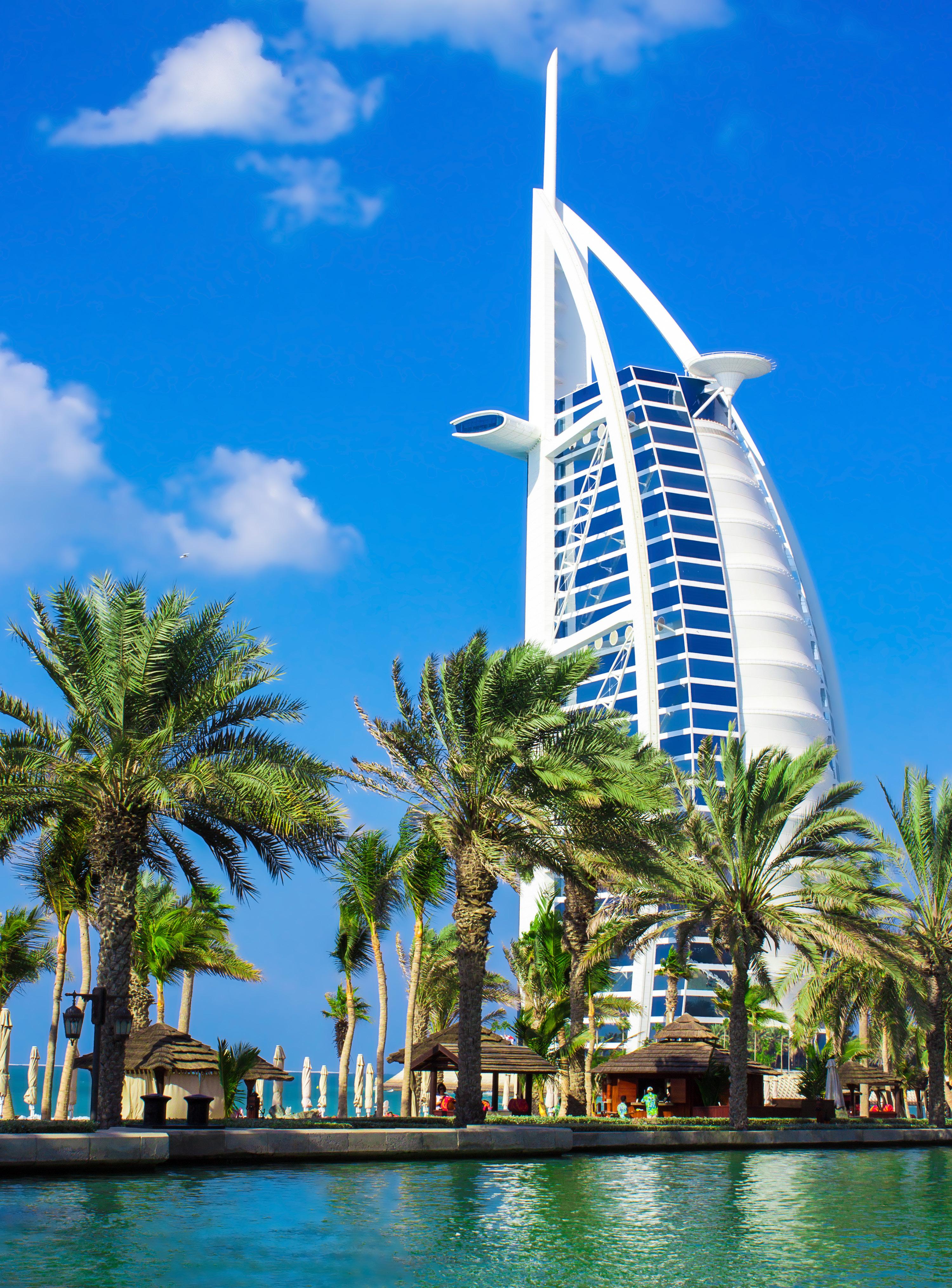
Sustainability has become a global imperative as nations grapple with the challenges of climate change, resource depletion, and environmental degradation. In the Middle East, where economies have historically been dependent on oil and natural gas, the push for sustainability is particularly significant.
Governments across the Middle East are developing and enforcing policies that encourage sustainability. These initiatives span a wide range of sectors, including energy, water management, urban development, and environmental conservation. While specific policies may vary from country to country, several common themes can be identified:
• Energy Diversification and Renewable Energy: Middle Eastern countries are
investing in renewable energy sources such as solar and wind to reduce reliance on fossil fuels. Governments are setting ambitious targets for renewable energy production and offering incentives for private investments in this sector.
• Water Conservation: The Middle East is one of the most water-scarce regions in the world. Governments have implemented regulations to promote water conservation through efficient irrigation practices, wastewater recycling, and desalination technologies. Policies often emphasize the importance of reducing water consumption and optimizing water resources.
• Sustainable Urban Development: Urbanization in the Middle East is occurring at a rapid pace. Governments are focusing on creating smart cities that integrate sustainability into their design and operation. This includes green building standards, efficient public transportation systems, and waste management solutions.
• Environmental Protection and Biodiversity: Protecting natural ecosystems and biodiversity is a priority for many Middle Eastern governments. Regulations have been put in place to limit pollution, protect endangered species, and promote reforestation efforts.
• Economic Diversification: Recognizing the need to reduce economic dependence on oil, Middle Eastern governments are encouraging the growth of industries that support sustainability. This includes investments in technology, research, and development, as well as the promotion of eco-friendly industries such as tourism and agriculture.
Masdar City, UAE: Masdar City, located in Abu Dhabi, is one of the world’s most ambitious sustainable urban development projects. Launched in 2006, the project aims to create a carbon-neutral, zero-waste city powered entirely by renewable energy. The government of the UAE, through the Abu Dhabi Future Energy Company, has heavily invested in this project. Masdar City features advanced energy-efficient buildings, electric transportation systems, and extensive recycling programs. Although the project has faced challenges, it remains a beacon of sustainable urban development in the
region.
Saudi Arabia’s Vision 2030: Saudi Arabia’s Vision 2030 is a comprehensive reform plan that includes a strong focus on sustainability. One of the key elements of the plan is to diversify the economy away from oil by developing sectors such as renewable energy, tourism, and entertainment. The government has set ambitious goals to increase the share of renewable energy in the country’s energy mix and reduce greenhouse gas emissions. Projects such as the Red Sea Project, which aims to create a sustainable tourism destination, and the development of the Neom megacity, which will prioritize renewable energy and environmental sustainability, are central to Vision 2030.
Oman’s National Energy Strategy: Oman has taken significant steps toward sustainability with its National Energy Strategy, which aims to reduce the country’s dependence on fossil fuels and promote renewable energy. The government has set a target of generating 30% of its electricity from renewable sources by 2030. To achieve this, Oman has invested in large-scale solar and wind projects, such as the Dhofar Wind Farm, the first utilityscale wind farm in the Gulf Cooperation Council (GCC) region. Additionally, the government is promoting energy efficiency measures across various sectors, including industry and transportation.
The role of governments in promoting sustainability is multifaceted and essential. From enacting legislation and promoting renewable energy to fostering sustainable agriculture and engaging citizens, governments have the power to shape a more sustainable future. While challenges remain, the opportunities for progress are immense. By prioritizing sustainability in policy-making and governance, governments can ensure a healthy planet and a prosperous society for generations to come. The path to sustainability is a shared responsibility, and governments must lead the way in this global endeavor.
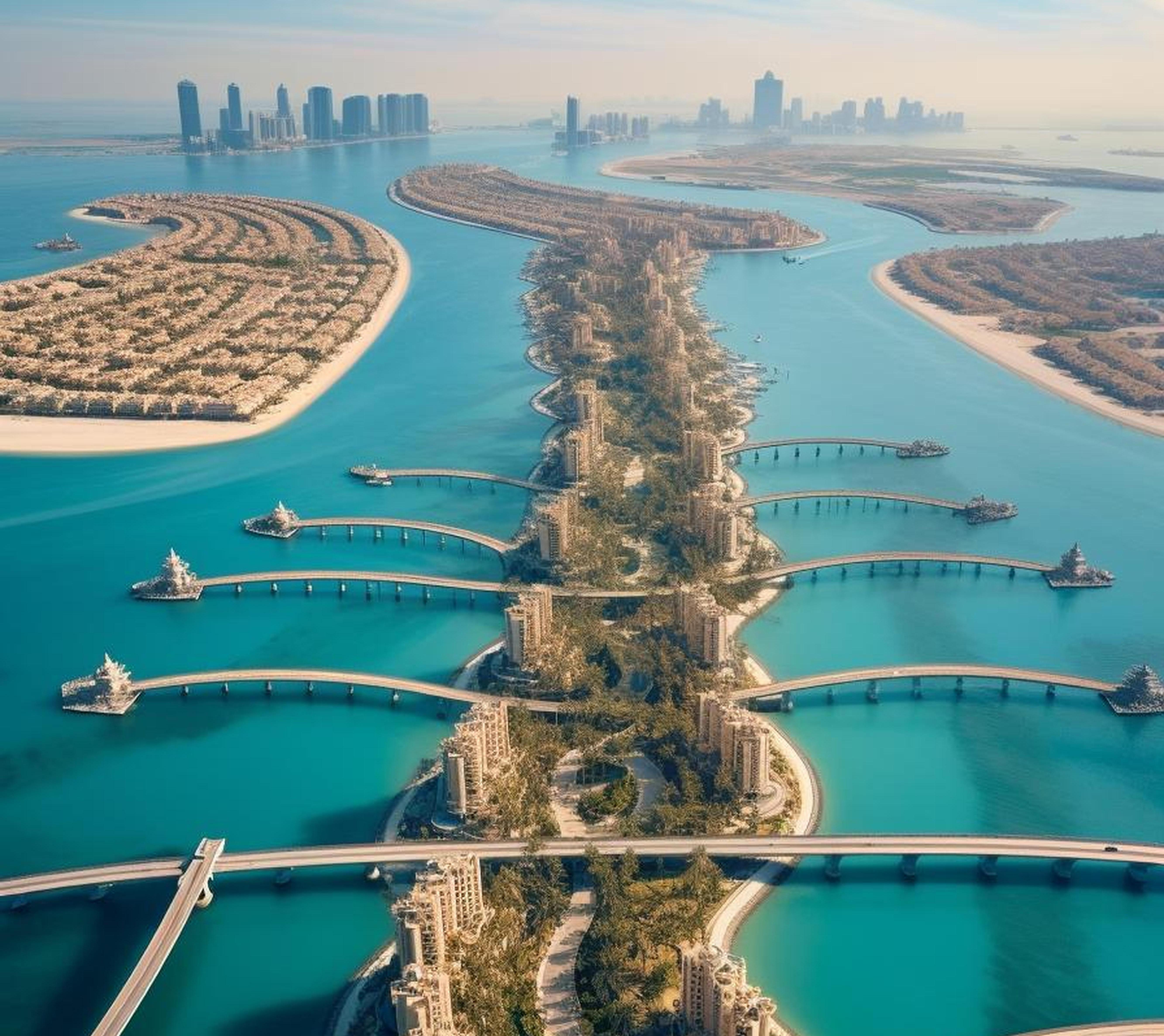



Welcome to the Sustainability Issue of Womenpreneur Middle East, a special edition that celebrates the remarkable women shaping the future of our planet. As the global community focuses on sustainability, women across the Middle East are emerging as key players in advancing environmental, social, and economic progress. Their efforts are directly aligned with the United Nations Sustainable Development Goals (SDGs), which provide a comprehensive roadmap to tackle the most pressing challenges of our time.
The SDGs, specifically SDG 7 (Affordable and Clean Energy), SDG 12 (Responsible Consumption and Production), and SDG 13 (Climate Action), are pivotal in building a sustainable future. According to the World Economic Forum, the Middle East has immense potential to become a global leader in sustainability, with the region’s investment in renewable energy expected to reach $35 billion by 2025. Women are playing a crucial role in this transformation, from founding eco-conscious businesses to leading impactful initiatives within major industries.
In fact, the International Renewable Energy Agency (IRENA) reports that women already make up 32% of the global renewable energy workforce—a notable figure, but one that highlights the need for even greater gender balance as we transition to a green economy. The potential for growth is vast: McKinsey predicts that if gender parity is fully realized in the workforce, the Middle East and North Africa (MENA) region could see an economic boost of $2.7 trillion by 2030—and sustainability will be a cornerstone of this economic renaissance.
The Urgency of a Greener Earth: Climate Data at a Glance
The case for sustainability has never been clearer. Global temperatures have risen by 1.2°C since pre-industrial times, and the Middle East is particularly vulnerable to climate change. According to a report by the World Bank, temperatures in the MENA region could increase by up to 4°C by the end of this century, exacerbating water scarcity and negatively impacting agriculture, infrastructure, and economic growth. It is crucial that businesses and governments in the region address these challenges proactively— and women entrepreneurs are stepping up to the task.
Data underscores the urgency of climate action. The World Meteorological Organization (WMO) warns that by 2050, extreme weather events could displace 200 million people globally, with many of these impacts hitting the Middle East hard. This is why the pursuit of sustainability is not just about environmental preservation; it’s also about economic resilience, social stability, and creating a future that is secure for all.
In light of these challenges, sustainability is no longer an option; it is an imperative. For businesses, integrating sustainable practices is proving to be a game-changer. A 2023 Accenture study revealed that companies with strong sustainability initiatives saw a 30% increase in customer loyalty and a 15% reduction in operating costs. These numbers demonstrate that sustainability is not only the ethical choice but the smart business decision.
Womenpreneur’s Vision: Leading the Charge for Change
At Womenpreneur Middle East, our mission is clear: to inspire, empower, and support women in business who are committed to sustainability. We believe that women are essential in driving the green economy forward, and we are dedicated to providing them with the platforms and tools to succeed. This issue highlights the women who are not only building eco-conscious businesses but are also creating solutions that have the power to transform industries and communities.
Our vision aligns with the UAE’s ambitious Net Zero by 2050 Strategic Initiative, a comprehensive plan aimed at achieving carbon neutrality. Women in the region are making significant contributions to this goal, from founding companies in renewable energy to launching zero-waste projects that promote sustainable living.
Womenpreneur Middle East is a community that champions women’s leadership in sustainability. We believe that collaboration is key, and through our various platforms— including our podcast series, networking events, and mentorship programs—we connect women entrepreneurs with the resources they need to scale their impact. The stories in this issue are a testament to the incredible talent and innovation women bring to the sustainability movement, offering insights into how they are reshaping industries, influencing policy, and driving systemic change.
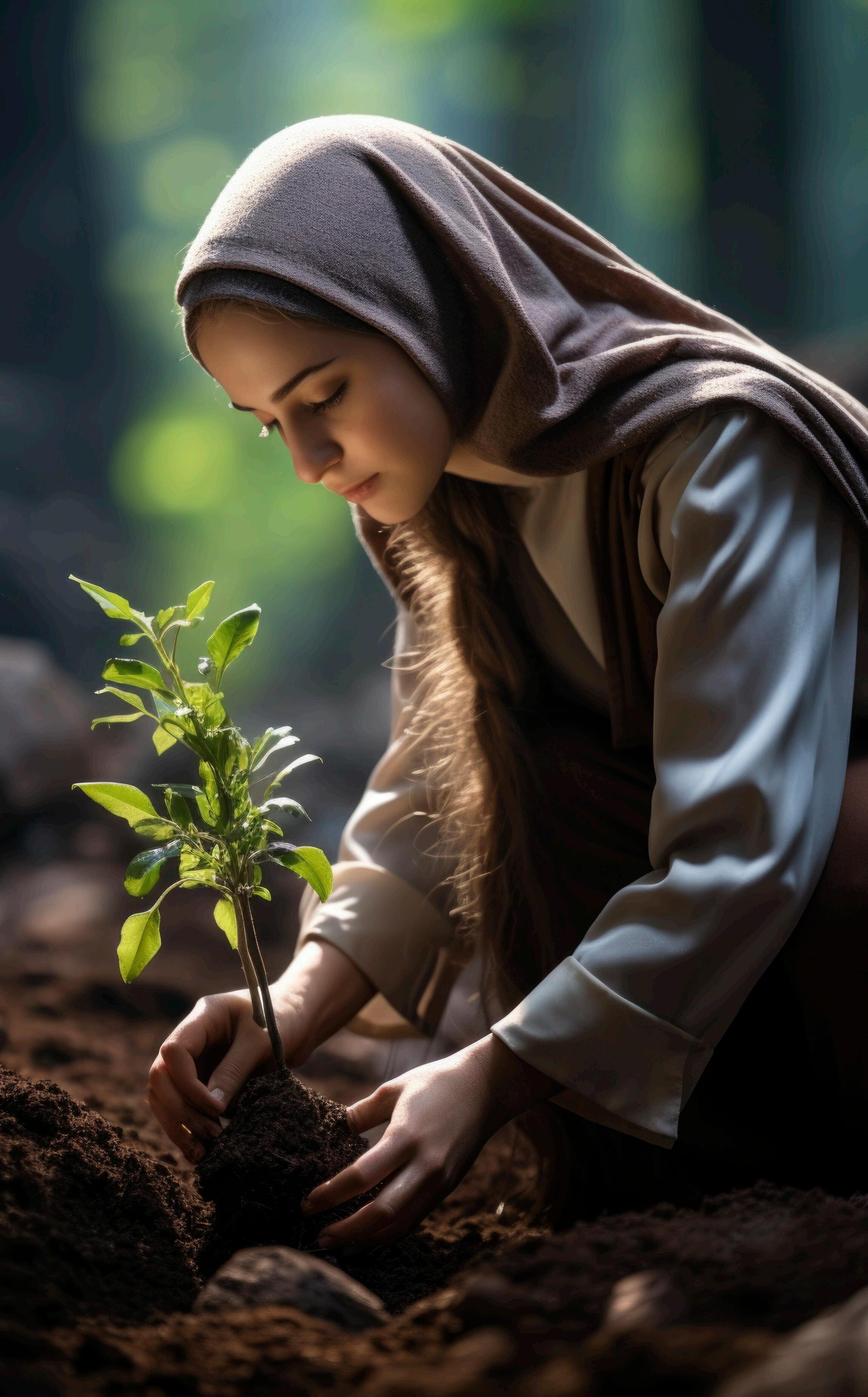
The Path Forward: A Greener and More Inclusive Future
The sustainability revolution is here, and women are leading it. From fashion to renewable energy, women-led businesses are pioneering solutions that will create a greener, more inclusive world. As we look toward the future, it is evident that women will play a pivotal role in achieving the Sustainable Development Goals and ensuring that the Middle East becomes a beacon of sustainable innovation.
This issue is a celebration of that potential. By showcasing the extraordinary achievements of women leaders and entrepreneurs, we aim to inspire more women to join the green economy and make their mark on the future. The world needs more women driving sustainability, and the Middle East is already proving that female leadership is the key to unlocking a more sustainable and prosperous future.
The time for action is now. With the combined efforts of government, industry, and visionary women leaders, we are confident that a greener, more sustainable future is not only possible but inevitable. Together, we are building a legacy for future generations—one where women are at the forefront of creating a world that is resilient, inclusive, and sustainable


Welcome to the Sustainability Issue of Womenpreneur Middle East, a special edition that celebrates the remarkable women shaping the future of our planet. As the global community focuses on sustainability, women across the Middle East are emerging as key players in advancing environmental, social, and economic progress. Their efforts are directly aligned with the United Nations Sustainable Development Goals (SDGs), which provide a comprehensive roadmap to tackle the most pressing challenges of our time.
The SDGs, specifically SDG 7 (Affordable and Clean Energy), SDG 12 (Responsible Consumption and Production), and SDG 13 (Climate Action), are pivotal in building a sustainable future. According to the World Economic Forum, the Middle East has immense potential to become a global leader in sustainability, with the region’s investment in renewable energy expected to reach $35 billion by 2025. Women are playing a crucial role in this transformation, from founding eco-conscious businesses to leading impactful initiatives within major industries.
In fact, the International Renewable Energy Agency (IRENA) reports that women already make up 32% of the global renewable energy workforce—a notable figure, but one that highlights the need for even greater gender balance as we transition to a green economy. The potential for growth is vast: McKinsey predicts that if gender parity is fully realized in the workforce, the Middle East and North Africa (MENA) region could see an economic boost of $2.7 trillion by 2030—and sustainability will be a cornerstone of this economic renaissance.
The Urgency of a Greener Earth: Climate Data at a Glance
The case for sustainability has never been clearer. Global temperatures have risen by 1.2°C since pre-industrial times, and the Middle East is particularly vulnerable to climate change. According to a report by the World Bank, temperatures in the MENA region could increase by up to 4°C by the end
of this century, exacerbating water scarcity and negatively impacting agriculture, infrastructure, and economic growth. It is crucial that businesses and governments in the region address these challenges proactively— and women entrepreneurs are stepping up to the task.
Data underscores the urgency of climate action. The World Meteorological Organization (WMO) warns that by 2050, extreme weather events could displace 200 million people globally, with many of these impacts hitting the Middle East hard. This is why the pursuit of sustainability is not just about environmental preservation; it’s also about economic resilience, social stability, and creating a future that is secure for all.
In light of these challenges, sustainability is no longer an option; it is an imperative. For businesses, integrating sustainable practices is proving to be a game-changer. A 2023 Accenture study revealed that companies with strong sustainability initiatives saw a 30% increase in customer loyalty and a 15% reduction in operating costs. These numbers demonstrate that sustainability is not only the ethical choice but the smart business decision.
At Womenpreneur Middle East, our mission is clear: to inspire, empower, and support women in business who are committed to sustainability. We believe that women are essential in driving the green economy forward, and we are dedicated to providing them with the platforms and tools to succeed. This issue highlights the women who are not only building eco-conscious businesses but are also creating solutions that have the power to transform industries and communities.
Our vision aligns with the UAE’s ambitious Net Zero by 2050 Strategic Initiative, a comprehensive plan aimed at achieving carbon neutrality. Women in the region are making significant contributions to this goal, from founding companies in renewable energy to
launching zero-waste projects that promote sustainable living.
Womenpreneur Middle East is a community that champions women’s leadership in sustainability. We believe that collaboration is key, and through our various platforms— including our podcast series, networking events, and mentorship programs—we connect women entrepreneurs with the resources they need to scale their impact. The stories in this issue are a testament to the incredible talent and innovation women bring to the sustainability movement, offering insights into how they are reshaping industries, influencing policy, and driving systemic change.
The sustainability revolution is here, and women are leading it. From fashion to renewable energy, women-led businesses are pioneering solutions that will create a greener, more inclusive world. As we look toward the future, it is evident that women will play a pivotal role in achieving the Sustainable Development Goals and ensuring that the Middle East becomes a beacon of sustainable innovation.
This issue is a celebration of that potential. By showcasing the extraordinary achievements of women leaders and entrepreneurs, we aim to inspire more women to join the green economy and make their mark on the future. The world needs more women driving sustainability, and the Middle East is already proving that female leadership is the key to unlocking a more sustainable and prosperous future.
The time for action is now. With the combined efforts of government, industry, and visionary women leaders, we are confident that a greener, more sustainable future is not only possible but inevitable. Together, we are building a legacy for future generations—one where women are at the forefront of creating a world that is resilient, inclusive, and sustainable.


In a rapidly changing world where the impacts of climate change are becoming increasingly evident, Sara AlAmeri stands out as a remarkable figure from the United Arab Emirates.
As a diplomat, social media influencer, and fervent advocate for sustainability, she is making significant strides in promoting environmental awareness and innovation. Her multifaceted career reflects a deep commitment to creating a better world for future generations, positioning her as a leading voice for a new generation.

Lamis Al Hashimy, an Emirati entrepreneur and co-founder of Palmade, has emerged as a trailblazer in the field of sustainable innovation. Her journey from a finance professional to an eco-entrepreneur is a testament to her dedication to environmental sustainability and her ability to transform seemingly ordinary materials into groundbreaking products. This biography explores the life, vision, and achievements of Lamis Al Hashimy, highlighting her significant contributions to sustainable practices in the UAE and beyond.

The aisles of mega-supermarkets are often overwhelming, with endless rows of plastic bottles filled with various cleaning products. On one serendipitous day, this common sight sparked a revolutionary idea in the minds of two extraordinary women, Farida El Agamy and Samar Sayegh. It was a moment of clarity that would set them on a path to transform the fast-moving consumer goods (FMCG) industry and challenge the status quo.
In the midst of a global pandemic, as the world reeled from the impacts of COVID-19, two visionary women embarked on a journey that would transform not only their lives but also the environmental landscape of the United Arab Emirates. Lara Hussein and Ceylan Uren, flatmates turned co-founders, dared to dream big and ask profound questions about their role in protecting the environment. This is the story of how they left behind successful careers to start The Waste Lab, a sustainable business venture focused on minimizing food waste and converting it into enriching compost.

In a rapidly changing world where the impacts of climate change are becoming increasingly evident, Sara AlAmeri stands out as a remarkable figure from the United Arab Emirates. As a diplomat, social media influencer, and fervent advocate for sustainability, she is making significant strides in promoting environmental awareness and innovation. Her multifaceted career reflects a deep commitment to creating a better world for future generations, positioning her as a leading voice for a new generation.
Sara’s academic journey laid the foundation for her impactful career. She graduated with honors in Geographic Information Systems (GIS) and Remote Sensing from the United Arab Emirates University, a discipline that equips her with the analytical skills necessary to address complex environmental issues. GIS technology is vital in urban planning, resource management, and climate change analysis. According to a report from the Global Industry Analysts, the GIS market is expected to reach $14.2 billion by 2026, emphasizing the importance of professionals like Sara in driving sustainable development.
Further enhancing her qualifications, Sara completed a postgraduate diploma in UAE Diplomacy and International Relations from the Anwar Gargash Diplomatic Academy. This program, which focuses on developing diplomatic skills and understanding global dynamics, has been instrumental in preparing her for the intricate world of international relations. Currently, she is pursuing a Master’s degree in Sustainability at Harvard Extension School, reflecting her unwavering commitment to understanding and tackling global environmental challenges.
Sara has been a vital asset at the UAE Ministry of Foreign Affairs for the past five years. Currently serving as an Information Analysis Specialist in the office of HE Ahmed Al Sayegh, Minister of State, she manages critical political and economic issues affecting
the Asia-Pacific region. This position not only requires a deep understanding of international relations but also the ability to navigate complex political landscapes.
One of her notable achievements has been her involvement in the UAE’s preparations for COP28, a landmark international climate change conference scheduled to take place in Dubai. The UAE’s commitment to hosting this conference reflects its proactive stance on global climate issues, and Sara’s role has been pivotal in ensuring that the nation plays a significant part in shaping climate policies. Her excellence in service has not gone unnoticed; she earned third place in the Minister of Foreign Affairs Excellence Award, a testament to her dedication and effectiveness.
As a driving force within the Arab Youth Council for Climate Change, Sara works tirelessly to unite young advocates in addressing climate issues. According to the UN Environment Programme, young people are among the most affected by climate change, and their voices are crucial in shaping a sustainable future. Sara’s representation of the UAE at prominent international events such as COP26, COP27, and the United Nations General Assembly underscores her commitment to confronting global environmental challenges.
At COP26, for instance, young leaders highlighted the urgent need for climate action, and Sara was instrumental in ensuring that the youth’s perspectives were included in high-level discussions. By advocating for youth engagement in climate policy, she is not only addressing current issues but also paving the way for future generations to have a seat at the table.
Sara is not just a diplomat; she is also an innovative entrepreneur. At the age of 22, she developed the “Smart Submarine” project, which won her the UAE University Chancel-
In my self-discovery journey, I have discovered that a person can become who they want to be instead of wasting time asking who they are
lor’s Innovation Award in 2016. This project exemplifies her entrepreneurial spirit and her ability to merge technology with environmental solutions. The Smart Submarine utilizes advanced technologies for underwater exploration and monitoring, contributing to marine conservation efforts—a critical area of focus given that the World Economic Forum estimates that by 2048, our oceans could be devoid of fish if current trends continue.
Beyond the Smart Submarine, Sara’s entrepreneurial endeavors include sustainable real estate investments. Recognizing the growing demand for eco-friendly buildings, she has invested in projects that prioritize energy efficiency and sustainability, aligning with the UAE’s Vision 2021 goals of promoting a green economy. Her focus on sustainability not only benefits the environment but also addresses a market trend; a recent report from the Global ESG Benchmark for Real Assets revealed that properties with sustainability certifications can command higher rents and lower vacancy rates.
With over 62,000 followers on social media, Sara leverages her platform to educate and inspire others about sustainable practices.

By advocating for youth engagement in climate policy, she is not only addressing current issues but also paving the way for future generations to have a seat at the table
She founded “Taameer,” an initiative focused on raising awareness about sustainability, which offers workshops and educational content aimed at engaging the community in environmental stewardship. Taameer has been instrumental in mobilizing youth for clean-up drives, tree-planting initiatives, and awareness campaigns surrounding water conservation—issues that are particularly relevant in arid regions like the UAE.
In addition to Taameer, Sara hosts a podcast titled “Sustainability Through Generations.” The podcast serves as a platform for discussions with sustainability experts, entrepreneurs, and activists, providing listeners with insights into best practices and innovative solutions. By addressing topics like renewable energy, waste reduction, and sustainable agriculture, Sara is not only informing her audience but also empowering them to take actionable steps toward a more sustainable lifestyle.
Sara also challenges traditional stereotypes through her diverse interests and hobbies. A fashion design graduate, she embraces activities such as boxing and horse riding— pursuits not typically associated with Emirati women. By pursuing her passions, Sara sends a powerful message that women can excel in any field they choose, irrespective of societal expectations. This message is particularly important in a region where women are increasingly taking on leadership roles in
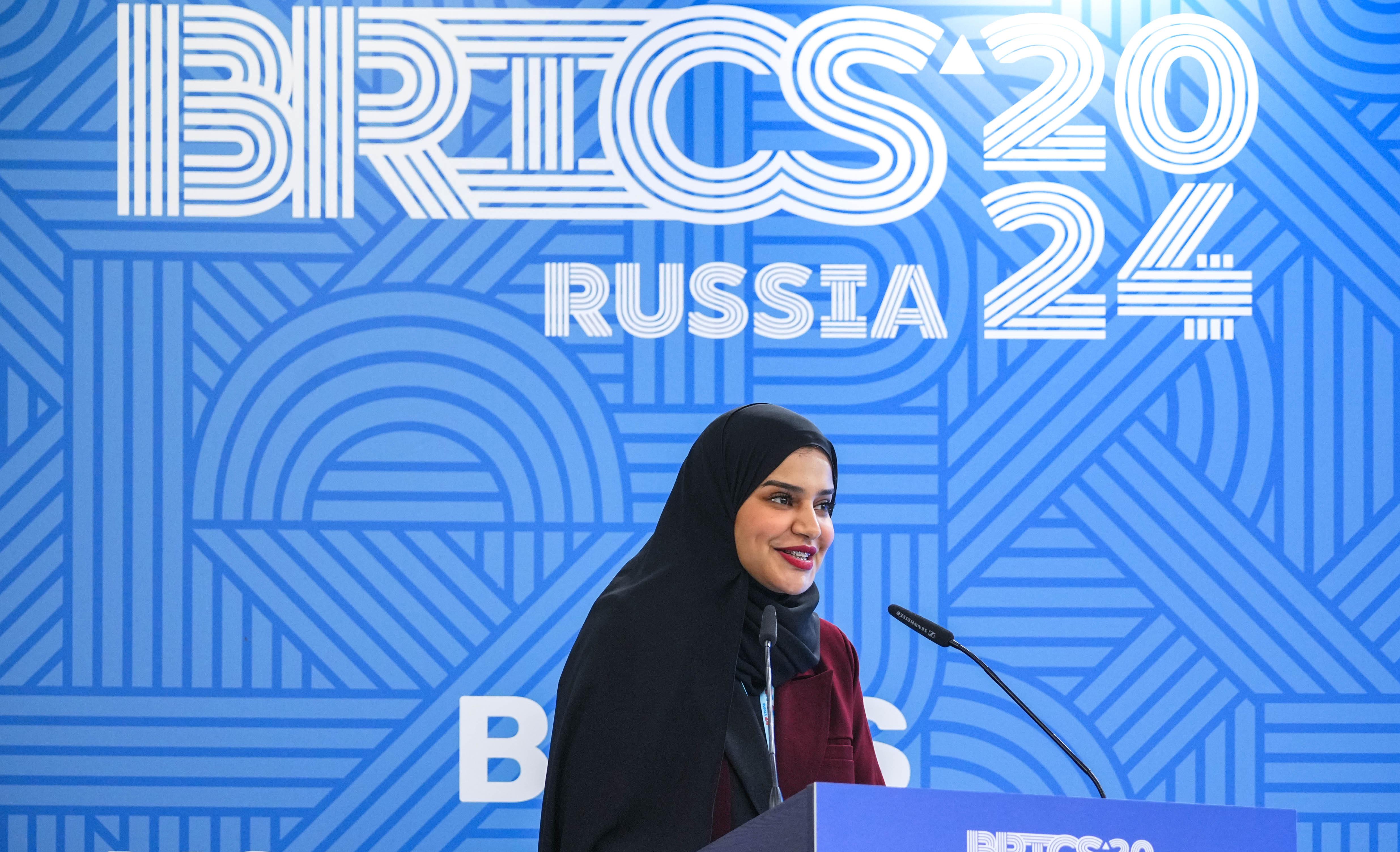
various sectors. The UAE has made significant strides in promoting gender equality, with women holding approximately 66% of government jobs, according to a 2020 report by the World Economic Forum. Sara’s multifaceted approach serves as an inspiring example for young women aspiring to break barriers in their own lives.
Sara AlAmeri embodies the spirit of the ambitious Emirati woman. Her achievements in leadership, diplomacy, sustainability, and entrepreneurship position her as a remarkable role model for women worldwide. She encourages women, especially young aspiring entrepreneurs, to pursue their dreams with passion and determination. “Break barriers, embrace your unique talents, and strive to make a difference in your community and beyond,” she advises. Sara’s journey serves
as a testament to the power of hard work and dedication. Her belief that “God has created us on this Earth to build and preserve it, not to destroy it,” resonates deeply, reminding us all of our responsibility to foster positive change. With her vision and commitment, Sara is indeed paving the way for a brighter, more sustainable future.
Sara’s initiatives are not just about personal achievement; they also reflect a broader movement towards sustainability in the UAE and beyond. For instance, her involvement in COP28 is crucial not only for the UAE but also for setting an example for other nations in the region. The UAE has committed to reducing its carbon footprint and increasing its reliance on renewable energy sources, aiming to generate 50% of its energy from clean sources by 2050. Sara’s participation
in these initiatives aligns perfectly with these national goals.
Moreover, her entrepreneurial projects like the Smart Submarine and sustainable real estate investments highlight how innovative solutions can tackle pressing environmental issues while also promoting economic growth. By combining technology with sustainability, Sara exemplifies how young leaders can influence industries and drive change. In conclusion, as the world grapples with climate change and other pressing challenges, voices like Sara AlAmeri’s are more important than ever. Her work not only highlights the critical role of youth in climate action but also inspires a generation to believe in their ability to effect change. In an era where sustainability is paramount, Sara stands out as a beacon of hope and a model for what can be achieved when passion meets purpose.

Lamis Al Hashimy, an Emirati entrepreneur and co-founder of Palmade, has emerged as a trailblazer in the field of sustainable innovation. Her journey from a finance professional to an eco-entrepreneur is a testament to her dedication to environmental sustainability and her ability to transform seemingly ordinary materials into groundbreaking products. This biography explores the life, vision, and achievements of Lamis Al Hashimy, highlighting her significant contributions to sustainable practices in the UAE and beyond.
Lamis Al Hashimy grew up in Dubai, a city known for its rapid development and modern infrastructure. From a young age, she was exposed to the rich cultural heritage of the UAE, particularly the importance of the date palm tree, which has been an integral part of the region’s history and lifestyle. The date palm, with its nourishing fruits, shade, and medicinal properties, has always held a special place in Emirati culture.
Despite her appreciation for traditional values, Lamis pursued a career in finance, a field that offered stability and growth. However, after years of working in finance, she found herself feeling unfulfilled and yearned for a purpose-driven career that could make a positive impact on society and the environment.
The turning point in Lamis’s life came during a trip to Florence, Italy, with her husband, Yusuf. The couple was fascinated by the art of handmade paper, a craft they encountered during their travels. Inspired by the idea of creating something beautiful and functional from natural materials, Lamis and Yusuf decided to experiment with papermaking upon their return to Dubai.
What began as a hobby in their garage quickly evolved into a passion project. They initially used cotton rags imported from Pakistan to make paper but soon realized the need to find a local and sustainable resource. The UAE’s indigenous trees, the date palm and the ghaf tree, caught their attention. One day, while walking through Jumeirah, they noticed discarded date palm leaves on the pavements. It sparked an idea: what if these leaves, often regarded as green waste, could be transformed into paper?
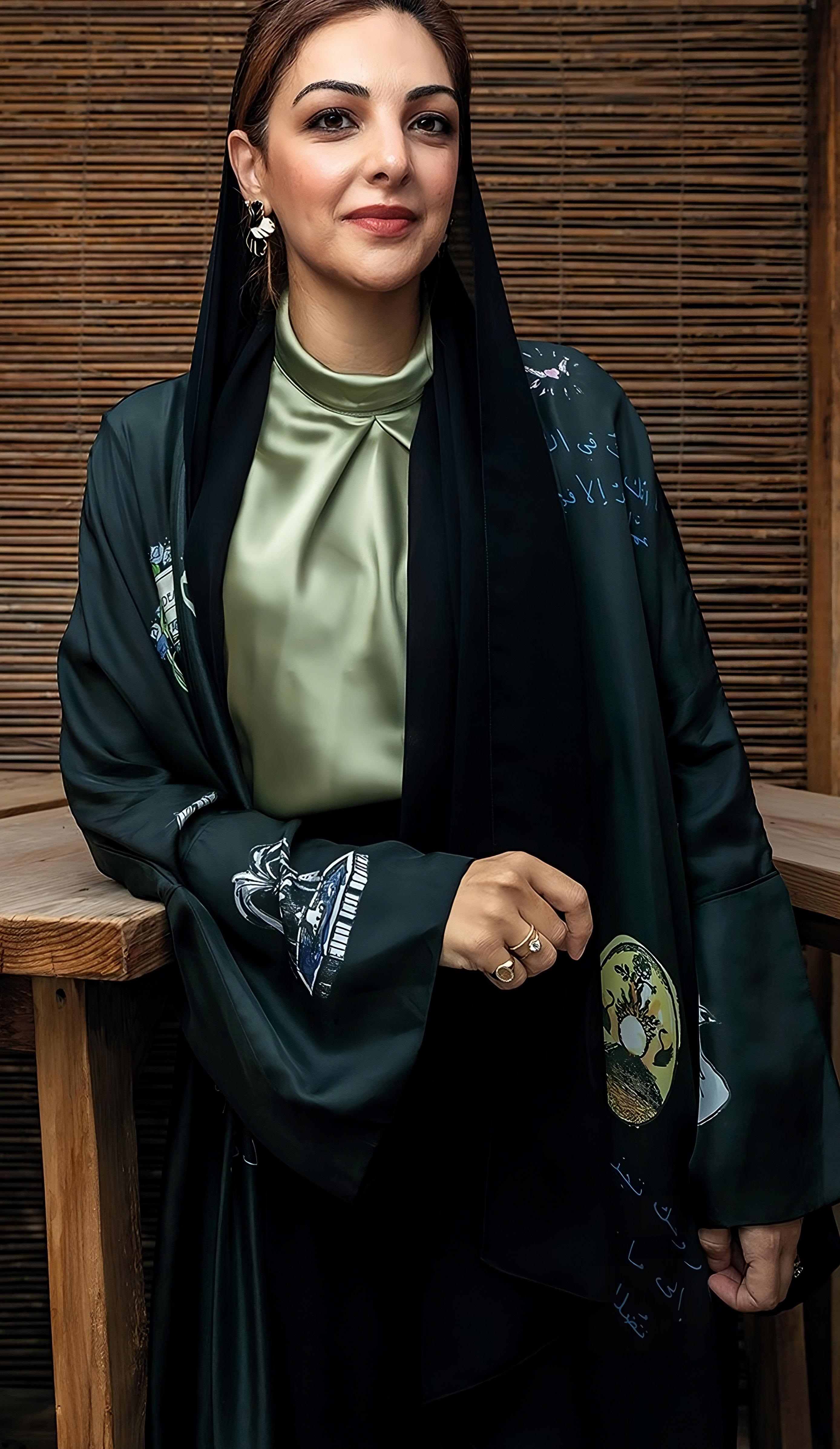
Lamis and Yusuf embarked on a journey to unlock the potential of date palm leaves. They began by shredding the leaves and experimenting with different methods to create paper. Through trial and error, they successfully produced paper from the leaves, which they showcased to various laboratories. This initial success motivated them to explore further applications of date palm leaves.
The couple discovered that by combining fibers from the leaves with plant biopolymers—extracts of sugarcane or soybean that act as a glue—they could create a material that resembled plastic but was biodegradable and eco-friendly. This breakthrough led to the idea of producing biodegradable cutlery from date palm leaves, addressing the pressing issue of single-use plastics.
In 2018, Lamis and Yusuf launched Palmade, a company dedicated to producing biodegradable cutlery and other eco-friendly products from date palm leaves. They viewed the Dubai Expo as an ideal platform to introduce their innovative products to the market. The feedback they received was overwhelmingly positive, encouraging them to continue their efforts.
Palmade’s biodegradable cutlery quickly gained traction, with one of their first major partners being Emaar Hotels. The support from such prominent entities highlighted the growing recognition of the importance of sustainable practices. Palmade’s products were soon adopted by restaurants and retailers like Spinneys, further expanding their reach.
Palmade’s factory, capable of producing 70,000 pieces of cutlery daily, became a hub of inno-
vation and sustainability. The company recently launched biodegradable straws, aligning with the UAE’s announcement to ban single-use plastic products by January 2025. This timely release demonstrated Palmade’s commitment to addressing environmental challenges and supporting government initiatives.
Lamis expressed her gratitude for the support of the UAE government, emphasizing the importance of collective efforts in achieving sustainability goals. She credited the government’s backing for providing the momentum needed to advance Palmade’s mission.
Lamis’s dedication to sustainability is deeply rooted in her role as a mother. She fondly refers to her children as “eco warriors” who advocate for eco-friendly practices, even speaking out against the use of plastic cutlery at restaurants. Leaving a positive legacy for her family and future generations is a key motivator for Lamis.
Her journey has not been without challenges. The sustainability industry is often misunderstood, with stigmas and stereotypes deterring many from adopting eco-friendly practices. Lamis and Yusuf have faced obstacles in convincing businesses to switch to sustainable alternatives due to perceived costs. However, they continue to raise awareness and educate others on the long-term benefits and value of sustainable products.
Palmade’s vision extends beyond cutlery. Lamis and Yusuf aim to create a wide range of products from date palm leaves, normalizing alternatives to single-use plastics. They have already partnered with a sports equipment company to produce golf tees and are exploring the possibility of making hairclips and glasses frames.
Lamis envisions Palmade as a materials company, focusing on sustainable solutions that address various environmental challenges.
Lamis’s ultimate goal is to build a new economy based on date palm-derived products, helping to replace single-use plastics and promote sustainability. She believes that meaningful change requires collaboration and collective action. By offering innovative, locally developed solutions, Palmade aims to empower communities to adopt eco-friendly practices and reshape the future.
Palmade’s innovative approach and dedication to sustainability have garnered recognition both locally and internationally. The company’s products have been showcased at various conventions and industry-specific panels, highlighting their contribution to reducing environmental impact. Lamis’s efforts have positioned her as a leading advocate for sustainable practices in the UAE.
Lamis is focused on expanding Palmade’s reach, particularly in the GCC region. Oman, with its shared values of preserving nature and addressing climate change, is a key target for expansion. Lamis envisions opening manufacturing units in Oman, creating job opportunities and contributing to the local economy.
Palmade’s business model, currently B2B, aims to transition to a B2C model, empowering consumers to make eco-friendly choices. Lamis believes that increased consumer awareness and preparedness will drive demand for biodegradable alternatives, further promoting sustainability.
We’ve all benefitted from the fruit or the shade of the Palm Tree; in the past Bedouins used it for shelter, and it even has medicinal properties, so I wouldn’t have been surprised to find another way to use it.

Raising awareness about sustainable decision-making is a core aspect of Palmade’s mission. Lamis emphasizes the importance of understanding the tangible and intangible value of choosing sustainable products. Through participation and panels, Palmade strives to educate businesses and consumers on the longterm benefits of sustainability.
Lamis Al Hashimy’s journey from a finance professional to a pioneer in sustainable innovation exemplifies her commitment to environmental responsibility and social impact. Through Palmade, she has transformed discarded date palm leaves into eco-friendly cutlery, offering a sustainable solution to the global plastic waste problem. Lamis’s dedication to sustainability, driven by her role as a mother and her deep connection
to the UAE’s cultural heritage, continues to inspire others to embrace eco-friendly practices. As Palmade expands its product range and reaches new markets, Lamis remains focused on building a new economy based on sustainable materials. Her vision, perseverance, and innovative spirit are paving the way for a more sustainable future, one where collective efforts can make a significant impact on the environment and society.

The aisles of mega-supermarkets are often overwhelming, with endless rows of plastic bottles filled with various cleaning products. On one serendipitous day, this common sight sparked a revolutionary idea in the minds of two extraordinary women, Farida El Agamy and Samar Sayegh. It was a moment of clarity that would set them on a path to transform the fast-moving consumer goods (FMCG) industry and challenge the status quo.
Kyma, a UAE-born startup, emerged from this shared vision. Farida, a lawyer and governance expert with a passion for sustainability, and Samar, an entrepreneur and brand expert with a deep concern for the environment, combined their unique backgrounds and insights to tackle the pervasive problem of single-use plastics. Together, they co-founded Kyma with a mission to eliminate single-use plastics and make sustainability accessible to all.
Farida El Agamy’s journey to becoming the co-founder and CEO of Kyma is a testament to her unwavering commitment to sustainability and innovation. Born to a Dutch mother and an Egyptian father, Farida’s multicultural upbringing in Switzerland instilled in her a deep appreciation for diverse perspectives and a natural flair for innovation. Fluent in six languages, she navigates the complexities of different cultures with ease.
Farida’s professional journey began in the legal field, where she quickly distinguished herself as a leader and governance expert. Her work with family-owned businesses in the UAE provided her with a unique vantage point on how to drive growth and sustainability in enterprises. It was this experience that helped shape her vision for Kyma.
“Kyma was born out of a simple yet powerful idea: that small changes can make a big difference,” Farida explains. “We wanted to create a brand that not only offers high-quality, effective products but also empowers consumers to make sustainable choices.”
Under Farida’s leadership, Kyma has become a beacon of innovation in the FMCG industry. Her belief that sustainability should be convenient and accessible to everyone has driven the company’s mission and inspired its many initiatives.
Samar Sayegh’s journey is equally inspiring. Born and raised in the UAE, Samar comes from a lineage of successful entrepreneurs. She is part of the third generation of the family-owned National Paints, a company known for its entrepreneurial heritage and commitment to excellence. Samar’s experience as an Executive Board Member of National Paints has given her a deep understanding of brand management and business transformation.
As a mother of three, Samar’s concerns about the chemicals and products her children were exposed to became a driving force behind the creation of Kyma. “I spent a lot of time thinking about the world my children would inherit,” she says. “I wanted to create products that are safe for them and for the environment.”
So with Kyma we have actually created loyalty in people, and many of them are still with us — their behaviour has changed, which is really encouraging.
Samar’s passion for sustainability and her expertise in brand management have been instrumental in Kyma’s success. Her insights into consumer behavior and her commitment to creating products that are both effective and eco-friendly have helped Kyma carve out a unique niche in the market.
Kyma’s journey began with a simple yet revolutionary idea: to create cleaning products in tablet form that dissolve in reusable bottles. This innovation not only reduces the use of single-use plastics but also offers a convenient and effective solution for consumers. The company’s mission, encapsulated in the term “refillution,” is to promote the reduction, reuse, and refill of cleaning products. Farida and Samar’s combined expertise and passion for sustainability have been the driving force behind Kyma’s success. They have reengineered and
reinvented cleaning by creating non-toxic, biodegradable, and cruelty-free cleaning tablets that are safe for both humans and pets.
“Kyma is not just a brand; it’s a movement,” says Farida. “We are committed to making sustainability an active, easy, and inseparable part of everyone’s life.”
Kyma’s
Kyma’s impact extends beyond its innovative products. The company’s commitment to sustainability is reflected in every aspect of its operations, from sourcing materials and manufacturing processes to packaging and distribution.
All Kyma products are ISO 9001 and ISO 22716 certified, ensuring the highest quality and safety standards.
Farida and Samar’s dedication to sustainability has also led to several research initiatives. For instance, Kyma collaborated with a company that assesses indoor air quality and found that their water-soluble cleaning tablets improve air quality by reducing the presence of airborne toxins. This discovery has significant implications for the health and well-being of people with asthma and other respiratory conditions.
Moreover, Kyma is participating in a research project to test the impact of different cleaning brands on indoor air quality in schools. This project aims to highlight the benefits of Kyma’s
non-toxic and non-airborne formulations in creating healthier environments for children.
Launching Kyma was not without its challenges. The cleaning industry is traditionally loyalty-driven, with consumers often sticking to familiar brands and products. Farida and Samar had to not only introduce a new product but also encourage a shift in consumer behavior.
“Cleaning is influenced by culture and tradition,” Farida explains. “What we’re asking people to do is change their consumer behavior and adopt a more sustainable approach.”
Despite these challenges, Kyma has successfully cultivated a loyal customer base. The company’s focus on affordability and accessibility has resonated with consumers who are eager to make sustainable choices. Farida and Samar’s emphasis on making sustainability a human right rather than a luxury has been a key factor in Kyma’s growth.
Kyma’s success in the UAE has garnered international attention, with demand for its products in countries like the United States, Poland, Cyprus, and India. However, Farida and Samar remain focused on solidifying their presence in their home market before expanding globally.
“Our goal is to build a strong foundation in the UAE and then take Kyma to the world,” Samar says. “We want to ensure that our products are accessible to everyone, regardless of where they live.”
Looking ahead, Kyma aims to expand its product portfolio to include a wider range of sustainable household essentials. The company’s vision is to create a lifestyle brand that uses chemical and technological innovation to make everyday products more ecological and consumer-friendly.
Launching Kyma was a big gamble. Cleaning is a really traditional, loyalty-driven behavior. It’s also influenced by culture because you probably clean like your family cleans. What we’re asking you to do is not just use a different product, but also change your consumer behavior


Farida and Samar’s journey with Kyma offers valuable lessons in entrepreneurship. They emphasize the importance of identifying a problem and finding a solution, being open to failure, and seeking advice from those who have successfully navigated the entrepreneurial landscape.
“Identify a problem that you are facing personally as a consumer that has no evident solution, and come up with an idea that would solve it for
you,” Farida advises. “Chances are, if you’re continuously facing an unsolved problem, there is an unaddressed gap in the market.”
Samar adds, “It’s important to be okay with trying things, them not working out, and moving on. The best advice in entrepreneurship comes from the people who have done it and managed to build a successful company.”
Farida El Agamy and Samar Sayegh’s journey with Kyma is a testament to the power of
innovation, collaboration, and a shared vision for a better future. Their commitment to sustainability and their relentless pursuit of excellence have not only transformed the cleaning industry but also inspired a new generation of entrepreneurs.
Kyma’s refillution is a powerful reminder that small changes can make a big difference. By empowering consumers to make sustainable choices, Farida and Samar are helping to create a cleaner, healthier, and more sustainable world for future generations.
In the midst of a global pandemic, as the world reeled from the impacts of COVID-19, two visionary women embarked on a journey that would transform not only their lives but also the environmental landscape of the United Arab Emirates. Lara Hussein and Ceylan Uren, flatmates turned co-founders, dared to dream big and ask profound questions about their role in protecting the environment. This is the story of how they left behind successful careers to start The Waste Lab, a sustainable business venture focused on minimizing food waste and converting it into enriching compost.
The Beginnings: A Pandemic Revelation
The pandemic lockdown provided a unique opportunity for introspection and deep conversations for Lara Hussein and Ceylan Uren. “We saw one small virus paralyze the whole world, from our lack of respect for nature,” Lara recalls. These discussions spurred a sense of urgency and a desire to make a tangible impact. Lara, originally from Lebanon, and Ceylan, hailing from Turkey, were both acutely aware of the environmental challenges facing their home countries, which boast rich natural landscapes and fertile soils. However, they found themselves in the UAE, a country characterized by its arid desert environment. Lara remarked, “The desert isn’t dead — there’s soil here, it just needs a bit of TLC.”
Motivated by a shared vision of environmental stewardship, Lara decided to quit her corporate job, and Ceylan left her role as an architect. The duo embarked on a mission to address the issue of food waste, a prevalent problem in the UAE, where food waste levels are alarmingly high. They spent six months in Turkey, visiting
local farms and learning the intricacies of composting. Armed with newfound knowledge and determination, they returned to Dubai in 2021 to register The Waste Lab and launch pilot projects within the community.
Starting a new business is never easy, and Lara and Ceylan faced their fair share of challenges. Initially, they went door-to-door collecting food waste from households, a task that required immense dedication and hard work. However, their efforts soon began to pay off. They formed partnerships with major hotels such as Hilton and Pullman, local restaurants, offices, and even large events like the COP28 climate change conference.
One of the unique aspects of The Waste Lab’s approach is their hands-on involvement in training kitchen staff on proper food waste segregation. This includes distinguishing between food scraps discarded during preparation and leftovers post-consumption. The collected waste is transported to The Waste Lab’s control station in Jebel Ali, where it is meticulously sorted to remove any contaminants. From there, the waste is taken to their farmland on the Dubai-Abu Dhabi border, capable of handling around 17 tonnes of food waste per day. “We harness the power of nature and build compost piles — each can be around one to two tonnes of food waste,” explains Lara. The transformation process, which involves mixing food waste with carbon material, takes six to eight weeks, resulting in nutrient-rich compost.
Early on in my journey with The Waste Lab, a mentor from my university warned me against “wasting my life” in a male-dominated industry. This actually fueled me to do it. It gave me motivation rather than making me shrink in my place.
One of The Waste Lab’s core philosophies is giving back to the community. A portion of the compost produced is returned to their clients, enabling them to continue the cycle of nature. This compost has been used to create rooftop urban gardens, indoor garden installations, and more. The remainder is distributed to households, farmers for soil testing, and used for further research. Additionally, The Waste Lab conducts educational sessions in schools and offices, raising awareness about the importance of composting and sustainable living.
The Waste Lab’s efforts are particularly significant in the UAE, where food waste levels are twice as high as some European countries. Cultural factors, such as the tradition of hosting large gatherings with abundant food, contribute to this issue. The Ministry of Climate Change and Environment, along with the Emir.

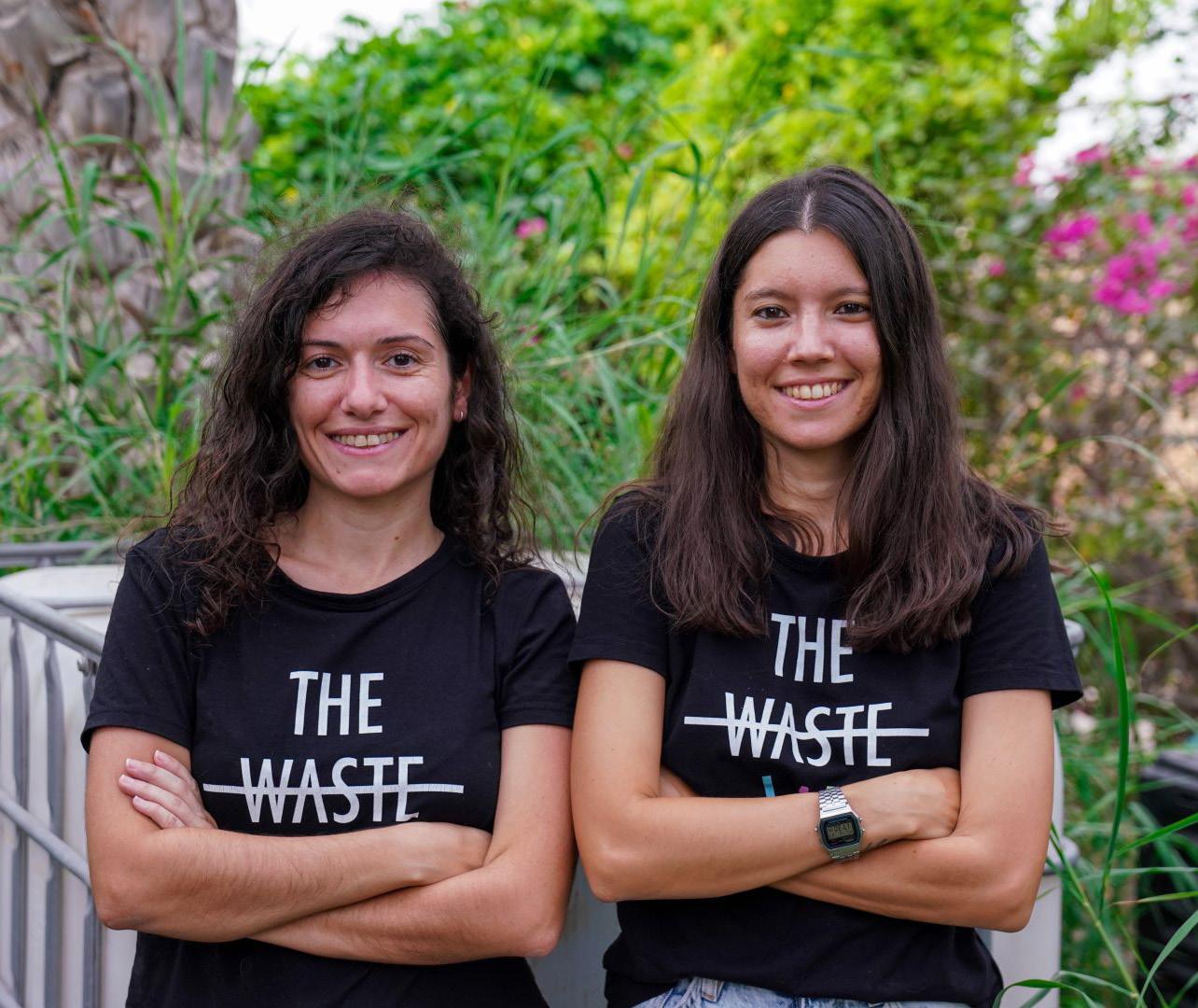
ates Foundation, are working to combat this through initiatives like Ne’ma, which aims to reduce food waste by 50% by 2030. Lara acknowledges, “They’re working on transforming traditional value systems. Food is a blessing; you consume enough and you don’t waste it.”
Overcoming Obstacles and Achieving Milestones
The journey of The Waste Lab has not been without its hurdles. Early on, a mentor warned Lara against entering the male-dominated industry of waste management. However, this only fueled her determination. “This actually fu-
eled me to do it — it gave me motivation rather than making me shrink in my place,” she says. The company faced skepticism from investors who favored technology-heavy solutions over nature-based ones. “Everyone was looking for a technology-heavy solution, the next shiny object, and our technology was just nature,” explains Lara. But their commitment to working with nature, rather than against it, set them apart.
Despite these challenges, The Waste Lab has achieved significant milestones. In 2023, the company saw a substantial increase in demand and finally broke even. What started as a team
of two has now grown to 20 members. They have built pioneering partnerships with brands like Hilton, Pullman Dubai Creek City Centre, Vox Cinemas, and Coffee Planet, and have won a grant from Visa’s She’s Next program. Their pilot urban composting site at The Sustainable City has become a community center and a permanent fixture. To date, they have diverted 112 tons of food waste from landfills, equivalent to 129 tons of CO2 emissions.
For Lara and Ceylan, this is just the beginning. They plan to expand The Waste Lab’s opera-
tions across the Emirates, starting with Abu Dhabi and Sharjah. They aim to collaborate with local farmers, grow their own food using compost, and encourage others to understand and embrace the cycle of life. They recently opened a seed investment round to support their expansion, purchase equipment to increase efficiency and production, grow their team, and develop an app for process automation and impact tracking.
Their vision extends beyond waste reduction; they aim to foster a culture of environmental responsibility where everyone, from homeowners to large establishments, plays a part in sustainable living. “Every piece of food wasted has a more significant impact than we realize — it’s not just about the loss of food but also about environmental damage, resource squandering, and the missed opportunity to support our local ecosystem,” emphasizes Lara.
The journey of Lara Hussein and Ceylan Uren is a testament to the power of determination, innovation, and authentic passion. Their work with The Waste Lab has transformed the way communities in the UAE think about food waste and sustainability. From grit to glory, they have overcome obstacles, formed strategic partnerships, and made a real impact. Their story inspires us all to rise every day for a greener tomorrow, proving that even the humblest scraps can be turned into the seeds of a sustainable future.
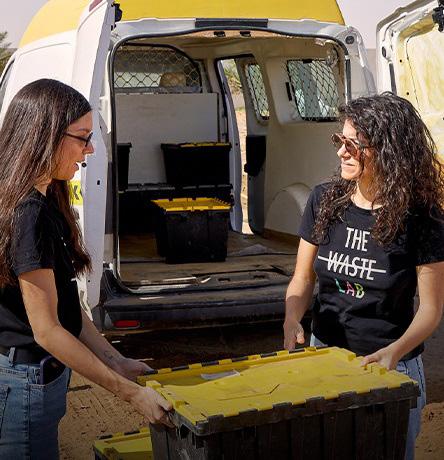
We saw one small virus paralyze the whole world from our lack of respect for nature. This made me realize it was time for a change. So, I quit my corporate job, and Ceylan left her role as an architect. Together, we embarked on a new sustainable business venture focused on minimizing food waste and converting it into enriching fertilizer for soil.
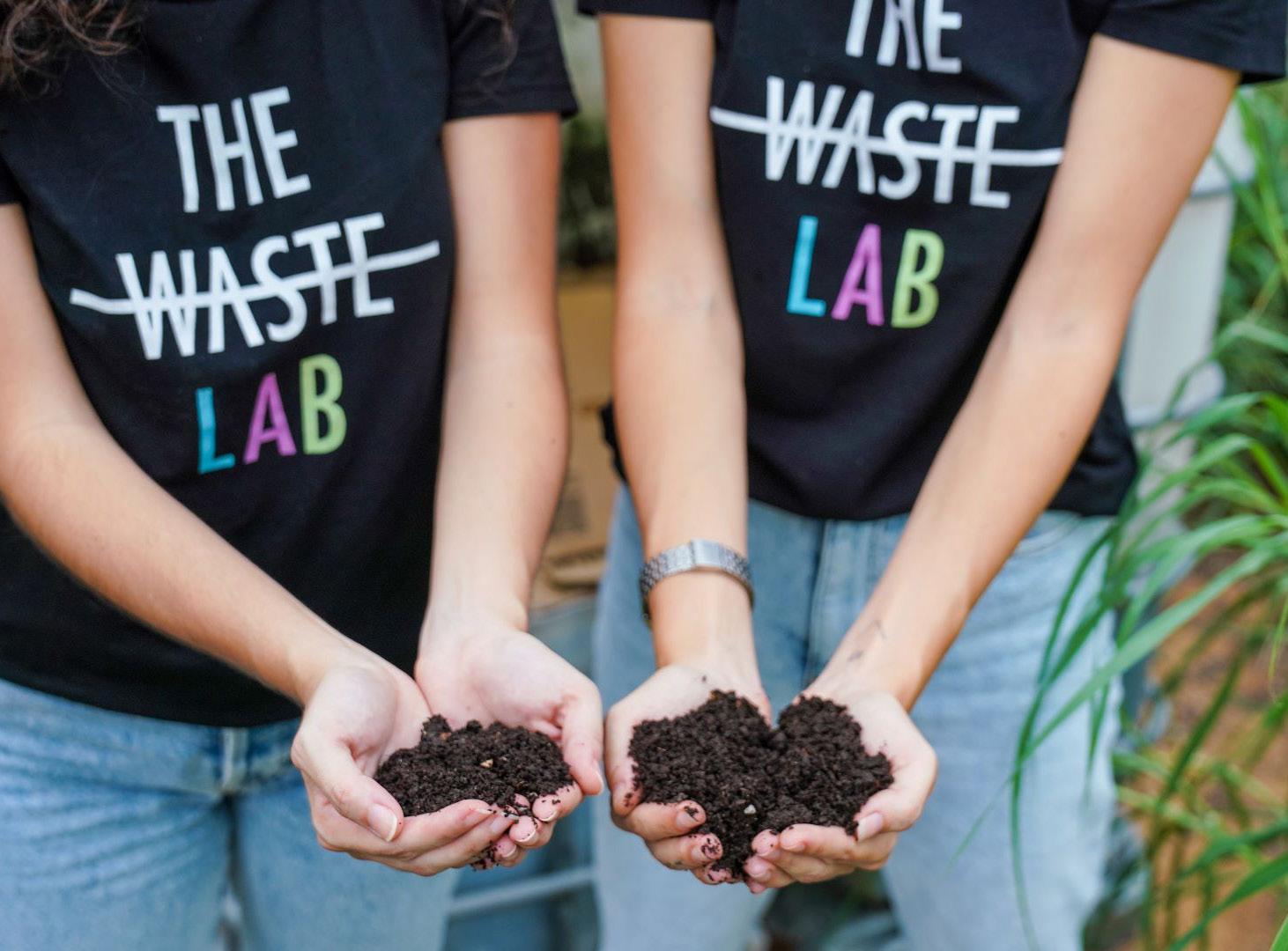



TThe fashion industry, often associated with creativity, innovation, and glamor, has a darker side that significantly impacts the environment. From resource-intensive production processes to the massive waste generated by fast fashion, the environmental footprint of the fashion industry is staggering. However, as awareness of these issues grows, so does the movement toward sustainable fashion. This article delves into the environmental impact of the fashion industry, explores key trends in sustainability, and spotlights brands and designers who are leading the charge in creating a more eco-conscious future, with a particular focus on the Middle East and global initiatives.
The fashion industry is one of the largest contributors to environmental degradation. Its impact can be felt across several dimensions, including resource depletion, pollution, and waste.
a. Resource Depletion:
The production of textiles is highly re-
“
It is estimated that producing a single cotton t-shirt can consume up to 2,700 liters of water, enough to meet one person’s drinking needs for two and a half years

source-intensive. For example, the cultivation of cotton, one of the most widely used fibers, requires vast amounts of water. It is estimated that producing a single cotton t-shirt can consume up to 2,700 liters of water, enough to meet one person’s drinking needs for two and a half years. Additionally, the extraction of raw materials like leather and synthetic fibers (such as polyester) relies on non-renewable resources like petroleum, further exacerbating resource depletion.
The fashion industry is responsible for significant pollution at various stages of its supply chain. The dyeing and finishing processes of textiles contribute to water pollution, releasing harmful chemicals into water bodies. The synthetic fibers, which make up a significant portion of the fabrics used today, shed microplastics during washing, which eventually find their way into the oceans, harming marine life. Furthermore, textile factories in many parts of the world operate without stringent environmental regulations, contributing to air and water pollution.
Fast fashion, characterized by the rapid production of inexpensive clothing, has led to a culture of disposability. Consumers are encouraged to purchase new clothing frequently, and as a result, an estimated 92 million tons of textile waste are generated annually. Much of this waste ends up in landfills or is incinerated, releasing harmful emissions into the atmosphere. Moreover, the rise of synthetic fabrics means that a large portion of discarded clothing is non-biodegradable, taking hundreds of years to break down.
The fashion industry is also a major contributor to global carbon emissions. The production, transportation, and disposal of clothing generate significant greenhouse gases. It is estimated that the fashion industry accounts for around 10% of global carbon emissions, more than all international flights and maritime shipping combined. This underscores the urgent need for the industry to adopt more sustainable practices to mitigate its impact on climate change.
In response to the environmental challenges posed by the fashion industry, there is a growing movement toward sustainable fashion. This movement encompasses a range of practices and principles aimed at reducing the industry’s environmental footprint while promoting ethical labor practices and supporting local communities.
a. Slow Fashion:
Slow fashion is a counter-movement to fast fashion, emphasizing quality over quantity and encouraging consumers to invest in timeless, durable pieces rather than following fleeting trends. Slow fashion advocates for a more mindful approach to consumption, where the focus is on longevity and craftsmanship rather than rapid turnover. By purchasing fewer, higher-quality items, consumers can reduce waste and lessen the demand for resource-intensive production processes.
b. Ethical Sourcing and Production:
Sustainable fashion also emphasizes ethical sourcing and production practices. This includes using organic and regenerative materials, such as organic cotton, hemp, and bamboo, which have a lower environmental impact compared to conventional materials. Additionally, sustainable brands prioritize fair labor practices, ensuring that workers are paid fair wages and work in safe conditions. Certifications like Fair Trade, GOTS (Global Organic Textile Standard), and B Corp help consumers identify brands that adhere to ethical and sustainable standards.
Slow fashion advocates for a more mindful approach to consumption, where the focus is on longevity and craftsmanship rather than rapid turnover “

The concept of circular fashion is gaining traction as a way to reduce waste and keep clothing in circulation for longer. Circular fashion involves designing products with the end of their lifecycle in mind, encouraging recycling, upcycling, and repurposing of garments. Brands are increasingly adopting circular practices, such as offering take-back programs, where customers can return old clothing for recycling or receive discounts on new purchases. By closing the loop, the industry can reduce its reliance on virgin materials and minimize waste.
d. Technological Innovations:
Advances in technology are also playing a crucial role in driving sustainability in fashion. Innovations like 3D printing, biodegradable fabrics, and waterless dyeing techniques are helping to reduce the environmental impact of clothing production. Additionally, blockchain technology is being used to improve transparency and traceability in supply chains, allowing consumers to make more informed choices about the brands they support.

3. Spotlight on Brands and Designers Leading the Charge
Around the world, several brands and designers are pioneering sustainable fashion, demonstrating that style and sustainability can go hand in hand. In the Middle East, a region known for its luxury fashion, there is a growing movement towards eco-conscious design, with local brands taking bold steps to reduce their environmental impact.
1. Reemami (UAE):
Founded by Emirati designer Reema Al Banna, Reemami is a brand that combines bold, artistic designs with a commitment to sustainability. The brand uses sustainable materials, such as organic cotton and recycled fabrics, and focuses on reducing waste through careful production planning. Reemami’s designs are inspired by art and storytelling, with a focus on ethical craftsmanship and supporting local artisans.
Lama Jouni, a Lebanese designer, has gained international recognition for her minimalist designs that emphasize sustainability. She prioritizes the use of eco-friendly fabrics and employs local artisans, helping to preserve traditional craftsmanship while reducing the brand’s carbon footprint. Lama Jouni’s collections are known for their timeless appeal, encouraging consumers to invest in pieces that will last for years.
3. The Giving Movement (UAE):
This Dubai-based brand has made sustainability and social responsibility the core of its mission. The Giving Movement produces activewear and loungewear from recycled and organic materials, with a commitment to ethical production practices. Additionally, the brand donates a portion of its profits to charity, supporting causes such as education and poverty alleviation in the region.
b. Global Pioneers:
1
Stella McCartney is one of the most wellknown advocates for sustainable fashion on the global stage. Her brand is committed to using sustainable materials, such as organic cotton, recycled polyester, and innovative alternatives to leather and fur. McCartney’s designs are a testament to the idea that luxury fashion can be both stylish and sustainable, setting a high standard for the industry.
Patagonia is a leader in the sustainable fashion movement, with a longstanding commitment to environmental stewardship. The brand uses organic and recycled materials in its products and encourages customers
to repair, reuse, and recycle their clothing through initiatives like the Worn Wear program. Patagonia’s activism extends beyond fashion, as the company donates a significant portion of its profits to environmental causes and advocates for systemic change.
Veja is a footwear brand that has gained a cult following for its stylish sneakers made from sustainable materials. The brand uses organic cotton, wild rubber from the Amazon, and recycled materials to create its shoes, all while maintaining fair trade practices. Veja’s transparent supply chain and commitment to sustainability have made it a favorite among eco-conscious consumers.

Sustainable fashion extends beyond just the clothes we wear. It has the potential to influence broader social and environmental systems, creating positive change on multiple levels.
Many sustainable fashion brands prioritize working with local artisans and producers, helping to preserve traditional crafts and provide livelihoods in underserved communities. By supporting local economies, these brands contribute to social and economic development, particularly in regions where opportunities are limited. This is especially relevant in the Middle East, where several brands are collaborating with local artisans to create unique, handcrafted pieces that reflect the region’s rich cultural heritage.
The fast fashion industry has been criticized for exploiting workers in developing countries, where labor is cheap, and regulations are lax. Sustainable fashion seeks to address this imbalance by promoting fair wages and safe working conditions. By ensuring that workers are treated ethically and paid fairly, sustainable fashion can help reduce global inequality and create a more just and equitable industry.
Sustainable fashion brands often play a key role in raising awareness about environmental issues among consumers. Through transparency, education, and advocacy, these brands encourage consumers to think critically about their purchasing decisions and the impact of their consumption habits on the planet. This shift in consumer consciousness is vital for driving systemic change and reducing the fashion industry’s overall environmental footprint.
While the sustainable fashion movement is gaining momentum, several challenges remain in scaling up these practices across the industry.
Sustainable fashion often comes with a higher price tag due to the use of eco-friendly materials, ethical production practices, and the lower economies of scale compared to fast fashion. This can make sustainable fashion less accessible to the average consumer. However, as demand for sustainable products grows and innovations in production processes continue, the costs are expected to decrease, making sustainable fashion more affordable and widespread.
Another challenge lies in shifting consumer behavior. Despite the growing awareness of the environmental impact of fashion, many consumers are still drawn to the convenience and affordability of fast fashion. Educating consumers about the long-term benefits of sustainable fashion and encouraging more mindful consumption patterns is crucial for driving change.

For sustainable fashion to truly make a difference, the entire industry needs to undergo a transformation. This requires collaboration between brands, governments, and consumers to create a regulatory environment that supports sustainability. Governments can play a role by incentivizing sustainable practices through tax breaks, grants, and regulations that encourage eco-friendly production and discourage wasteful practices.
Sustainable fashion is more than just a trend—it’s a necessary shift towards re-
ducing the fashion industry’s environmental footprint and creating a more equitable world. While challenges remain, the efforts of pioneering brands and designers in the Middle East and globally demonstrate that it is possible to create beautiful, innovative fashion without compromising the planet. As the movement grows, consumers, businesses, and policymakers alike have the opportunity to contribute to a future where fashion is not only stylish but also sustainable. By making conscious choices, supporting ethical brands, and advocating for systemic change, we can all play a part in shaping a more sustainable fashion industry.


Visionary Voice
“Keeping your heart and eyes open"





As sustainability and convenience become increasingly vital, MOTOR has emerged as a trailblazer in electric mobility. Established in 2019 in Dubai by a team of seasoned professionals, including Kazbek Khunkaev, MOTOR is not just another car rental service. It’s a forward-thinking solution that combines cutting-edge technology with eco-friendly transportation, perfectly tailored for the dynamic lifestyle of the MENA region. MOTOR has quickly made a name for itself in the electric mobility space in the MENA region.
In the face of growing environmental challenges, the need for sustainable production and consumption has never been more critical. The United Arab Emirates (UAE) is embracing this challenge by exploring innovative solutions that align with the 12th Sustainable Development Goal (SDG) – Responsible Production and Consumption. Despite existing frameworks targeting sustainable practices, there remains significant potential for reducing water consumption, addressing food insecurity, and promoting lifestyles in harmony with nature. One promising solution that bridges these challenges at both commercial and residential levels is hydroponics.

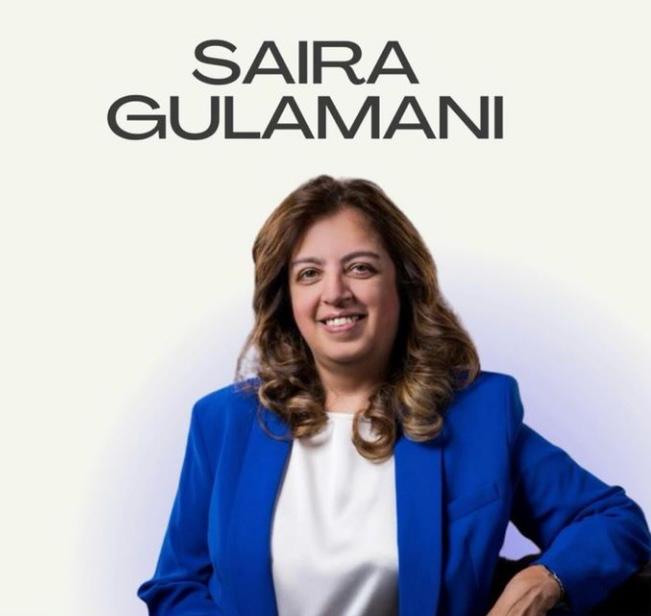
In an era where technology and sustainability are at the forefront of global conversations, doyourbit.xyz emerges as a beacon of innovation, bridging the educational gap between urban and rural communities. Founded by Saira Gulamani, an HR professional with a passion for climate change education and technological empowerment, doyourbit.xyz is transforming how students learn and apply their knowl-

the world shifts towards more sustainable practices, the MENA region is witnessing a remarkable transformation led by innovative platforms like Sustynable. Co-founded by Mohammad Hassan, a seasoned Sales & Marketing expert with over a decade of experience, Sustynable is setting new standards in the digital lifestyle space by offering a holistic approach to sustainable living. As a seasoned Sales & Marketing expert with over a decade of experience in the MENA region, Mohammad Hassan recently co-founded a groundbreaking platform called Sustynable. He started the conversation by sharing the inspiration for creating this platform and said, “Sustynable was born out of a deep-rooted concern for the environment and the realization that sustainable living is not just a necessity but an urgent one. Over the years, I’ve seen firsthand how our region, while rich in resources, faces significant environmental challenges. The idea behind Sustynable was to create a digital lifestyle platform that makes the transition to a more sustainable way of life easy, accessible, and appealing for everyone, whether individuals or businesses.
edge to real-world challenges. The mission of doyourbit.xyz is rooted in the belief that every student, regardless of their geographic location, deserves access to quality education and the tools necessary to succeed in the digital age. Whether in the bustling urban centres or the remote rural areas, doyourbit.xyz ensures that students have the opportunity to engage with technology and develop skills that are essential for the future. “Our goal is to bridge the gap between urban and rural education by empowering students with the knowledge and skills to harness technology,” explains Saira Gulamani. “We believe that by providing equal access to education, we can nurture a generation of innovators who are equipped to create meaningful solutions to global challenges.”

As sustainability becomes an increasingly pressing global priority, Rumbella is making a significant impact in the fight against food waste. Established in the UAE during the nation’s Year of Sustainability, Rumbella is a social enterprise focused on minimizing the environmental footprint of food waste across the GCC region. By leveraging cutting-edge technology, forging strategic partnerships, and upholding a strong commitment to social responsibility, Rumbella is not only addressing the issue of food waste but also advancing broader sustainability and climate action objectives. Chris Wilson, the CEO of Rumbella, is at the helm of this transformative initiative, combining technology, sustainability, and social responsibility to create a better future for both people and the planet.

In an industry traditionally resistant to change, Opteam AI is making waves by leveraging the power of generative AI to transform the construction landscape. Founded with a mission to address the inefficiencies and environmental challenges of construction, Opteam AI is optimizing project management and championing sustainability in a sector known for its resource-intensive practices.In an exclusive interview with Ahmed Hegazy, CEO of Opteam AI, we delve into the transformative potential of AI in the construction industry and the driving force behind Opteam’s mission to make sustainable decisions that benefit humanity. He left a stable, high-paying corporate career to start Opteam AI. Ahmed shared with us the inspiration to make such a bold move and added, “The decision to leave my corporate career wasn’t easy, but it was a move driven by a deep sense of purpose. Throughout my career in the global enterprise software sector, I saw firsthand how technology could be leveraged to solve complex problems. However, I also noticed a gap in how technology was being used to address larger, more systemic issues, particularly in sustainability and resource management.

Amidst the growing challenge of balancing food abundance with widespread hunger, Food4All has emerged as a transformative force, utilizing technology to connect surplus food with those in need. Founded by Abdul Saleem Palliyalil Oniyottil, a Senior Software Engineer with a strong commitment to social impact, Food4All addresses the dual crises of food waste and global hunger with innovative solutions that promote sustainability and community well-being. In this exclusive conversation, he shares his journey, the vision behind Food4All, and how he plans to make a global impact.
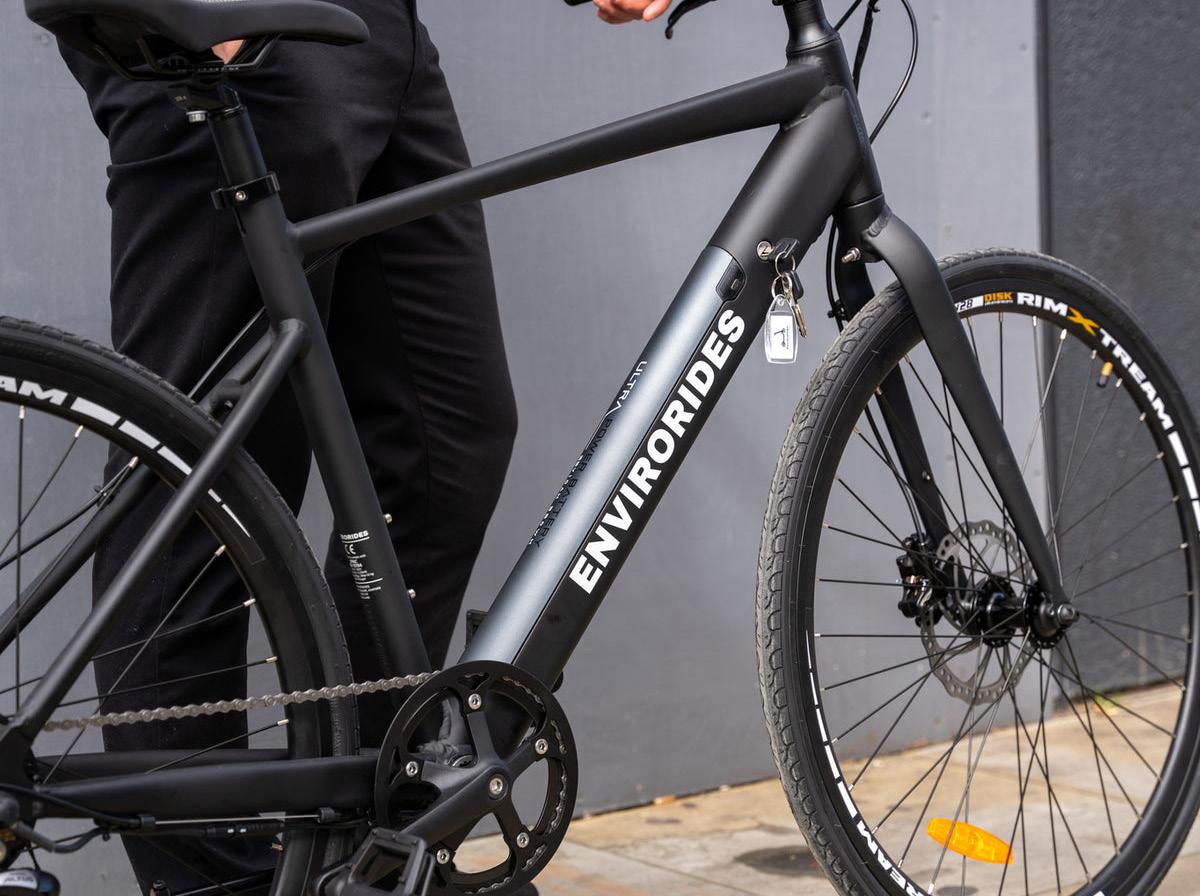
Nimit Solanki’s journey towards creating Vikalp.io began with a simple yet profound realization. “I’ve always been passionate about technology and its potential to solve real-world problems,” says Solanki. “During my time working with tech giants like Careem and Deutsche Telekom, I saw how AI and data analytics could transform industries. But when it came to waste management, the industry seemed stuck in the past.”This observation led Solanki to explore the intersection of technology and waste management. “The global waste crisis is something that has been escalating rapidly,” he explains. “I wanted to create a solution that would not only address this issue but also set a new standard for how we think about waste and recycling.

In the bustling city of Sharjah, a pioneering initiative is revolutionizing our perspective on transportation and sustainability. EnviroRide, spearheaded by the enterprising Mouza Alketbi, is redefining urban mobility with a novel approach that merges environmental consciousness with practical transportation solutions. Born from a graduation project, this startup is making significant strides in reducing carbon emissions through the innovative recycling of used cooking oil into biodiesel. I had the pleasure of speaking with Mouza Alketbi to explore the vision behind EnviroRide and its impact on the future of eco-friendly transportation.


In the UAE’s arid climate, water scarcity is an ongoing challenge, prompting innovative solutions to secure a sustainable water future. Ghaith Water System, led by CEO Saif Alyassi, is at the forefront of this endeavour, utilizing Atmospheric Water Generators (AWGs) to transform humidity into drinkable water. This article explores how the Ghaith Water System is revolutionizing water accessibility through a blend of advanced technology and environmental stewardship. Ghaith Water System’s approach hinges on the power of Atmospheric Water Generators. These devices extract moisture from the air, condense it, and purify it to produce clean drinking water. This technology is particularly valuable in regions like the UAE, where traditional water sources are scarce, and sustainability is a pressing concern.
In the heart of Dubai’s thriving tech landscape, a new wave of environmental consciousness is taking root, driven by the innovative efforts of We Are Tech FZ LLC (WAT). Founded by Grégoire Denjean-Massia, WAT is a company on a mission to transform how businesses manage their electronic waste. With a focus on simplifying the process of e-waste disposal, while ensuring it is done responsibly and sustainably, WAT is redefining the relationship between technology and the environment. As I sat down with Grégoire in WAT’s office, it was immediately clear that this is more than just a business venture for him—it’s a deeply personal mission. “The birth of my son was a turning point,” Grégoire shared, his eyes reflecting a mix of passion and determination.


Amid Dubai’s dynamic innovation environment, Renca is establishing itself with its pioneering approach to sustainable construction. Walking through their vibrant office, anyone could feel the energy and enthusiasm that drive their work. Leading this green revolution is Marina Dudnikova, the CEO whose vision and expertise are guiding Renca toward a more sustainable future.

In a world where the lines between physical and digital realities are increasingly blurred, LEAFES Corp is pioneering the intersection of fashion and technology in the Metaverse. Founded by visionary entrepreneur Olga Gi, LEAFES is not just another fashion house, it’s a revolutionary platform that redefines how we experience and interact with fashion in the digital realm.During our conversation about LEAFES Corp’s in Dubai, the energy was electric, reflecting the dynamic and innovative spirit that drives the company. Olga, the CEO, started talking with a
confident smile, her enthusiasm for the future of fashion evident from the start. “At LEAFES, we’re not just creating digital clothes, we’re building a whole new ecosystem for fashion in the Metaverse,” she explained, her eyes lighting up with excitement. Olga’s journey to founding LEAFES is as multifaceted as the digital landscapes her company is exploring.
NÜWATER is making waves with its innovative approach to sustainable hydration in Dubai. Founded by Cyrus Alavi, a former Apple engineer turned entrepreneur, NÜWATER is not just another bottled water company. It’s a movement towards reducing plastic waste and promoting environmental sustainability.
In a world increasingly driven by technology, the growing mountains of electronic waste (e-waste) pose a serious threat to our environment. Yet, amid this challenge, a new player is making waves with a vision to revolutionize how we interact with our electronic devices. Retake, a Dubai-based company, is not just another tech firm, it’s a movement toward a more sustainable future. Spearheading this revolution is Amol Panchal, the CEO and founder, who is passionately committed to reducing e-waste and promoting a circular economy.





OT Sustainable Homes is transforming the landscape of affordable housing in emerging markets with a bold, innovative approach. The company, founded by Anthony Oyoo Odero, is on a mission to provide low-cost, sustainable 3D-printed homes to those in need. As I sat down with Anthony to discuss his vision, it became clear that his passion for addressing housing shortages is deeply rooted in both personal experience and a commitment to sustainable development.
In the bustling retail world, where efficiency and turnover are paramount, the issue of food waste has become an increasingly pressing concern. Supermarkets and grocery stores frequently discard perfectly edible food items as they near their “best by” dates, leading to significant waste. Recognizing the need for change, BestBy, an innovative Abu Dhabi-based startup, is tackling this problem head-on. The company’s CEO, Sabira Huda, is on a mission to reduce food waste and promote sustainability through a unique digital platform. In a recent conversation, Sabira Huda explained the vision behind BestBy: “Our platform is designed to bridge the gap between consumers and retailers by offering food items nearing their best-by dates at discounted prices. This not only helps reduce food waste but also benefits consumers and retailers alike.”
In the heart of Dubai’s fast-paced tech scene, F3rn DeFi stands out not just for its innovative approach to finance but for its commitment to environmental sustainability. The brainchild of Nabeel Mohammed, F3rn DeFi merges the worlds of decentralized finance (DeFi) and environmental activism, creating a platform that empowers communities to take charge of their surroundings while ensuring transparency and accountability. As we started our sustainability conversation, Nabeel’s passion for both technology and the environment was immediately evident. “F3rn DeFi isn’t just about finance, it’s about creating a movement where people can come together to make a tangible impact on their communities,” Nabeel began. His background as an education consultant, combined with a deep interest in technology, has uniquely positioned him to bridge these two worlds.

In a rapidly evolving digital world, traditional paper business cards are becoming relics of the past. Leading the charge into the future of networking is TapToCard, a Dubai-based company that is reinventing the way professionals connect and share information. Founded in 2021, TapToCard offers a smart, sustainable alternative to paper business cards, utilizing Near Field Communication (NFC) technology to make contact sharing seamless, efficient, and eco-friendly. To delve deeper into the journey of TapToCard, I sat down with the company’s dynamic founder, Sarthak Sethi, a seasoned entrepreneur and TEDx speaker. His passion for innovation and sustainability is evident from the moment we start talking. “TapToCard was born out of a desire to merge convenience with sustainability,” Sethi explains.

In the face of accelerating climate change, businesses around the world are under increasing pressure to adopt sustainable practices. Olive Gaea FZCO, a leading Dubai-based Sustainability as a Service (SaaS) platform, is at the forefront of this movement, providing innovative solutions for carbon accounting, decarbonization, and achieving Net Zero emissions. At the helm of this forward-thinking company is Vivek Tripathi, a strategic thinker with over 17 years of global business leadership experience. In a recent conversation with Tripathi, his commitment to environment and business innovation was immediately evident. “Our mission at Olive Gaea is to empower businesses to take real, science-based climate action,” Tripathi explained. “We are not just providing a service, we are enabling a movement towards a more sustainable and carbon-neutral future.”
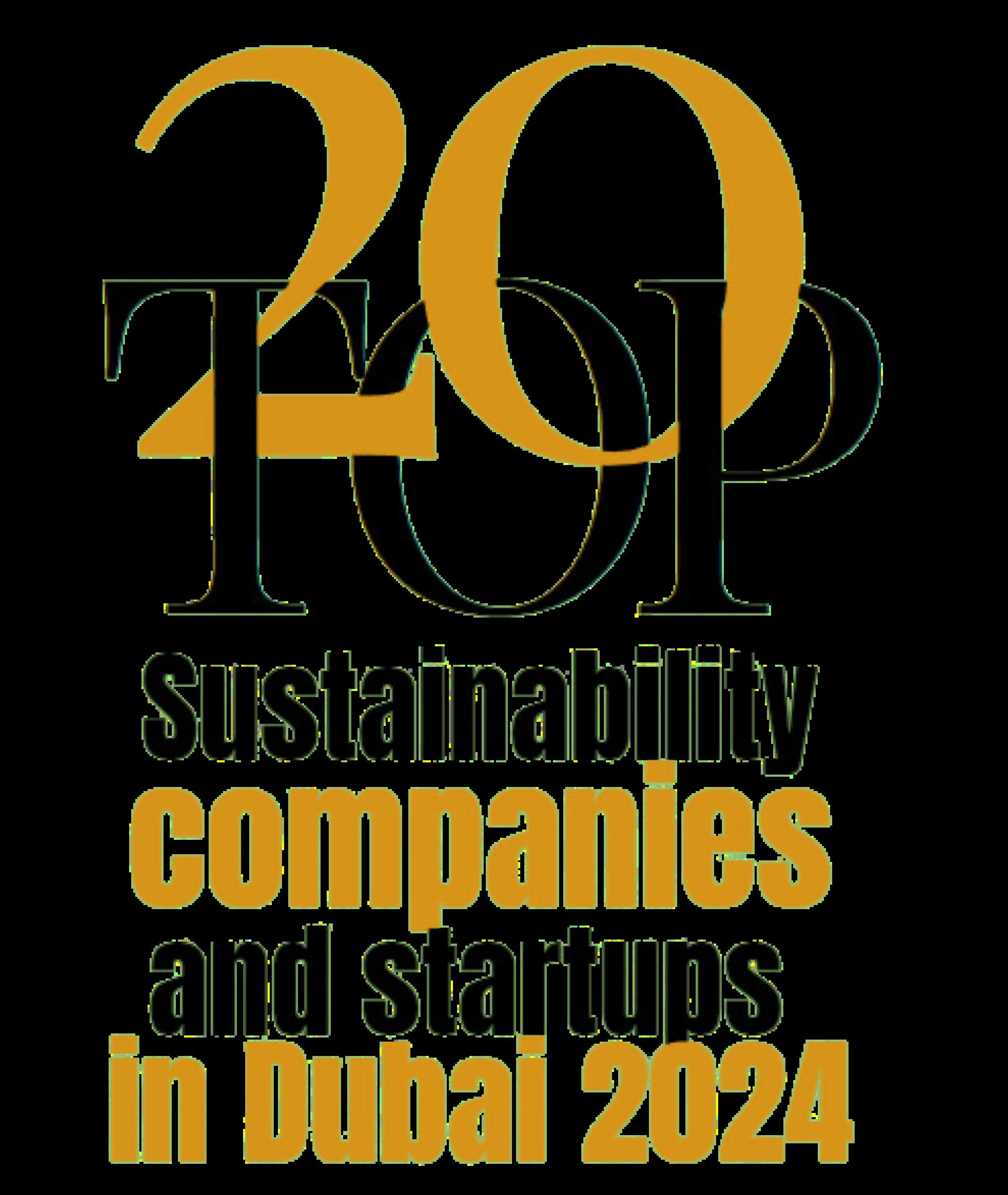

As sustainability and convenience become increasingly vital, MOTOR has emerged as a trailblazer in electric mobility. Established in 2019 in Dubai by a team of seasoned professionals, including Kazbek Khunkaev, MOTOR is not just another car rental service. It’s a forward-thinking solution that combines cutting-edge technology with eco-friendly transportation, perfectly tailored for the dynamic lifestyle of the MENA region. MOTOR has quickly made a name for itself in the electric mobility space in the MENA region.
Co-founders Hamad AlMazrooei and Kazbek Khunkaev described MOTOR as a next-generation car-sharing platform that offers residents and businesses flexible options for renting or subscribing to electric vehicles. They highlighted that rising fuel costs, along with the ‘UAE Net Zero 2050’ Vision and the government’s goal of converting 20 percent of its fleet to electric vehicles by 2030, have significantly boosted demand for electric vehicles across the emirates.
As we started our conversation Kazbek
shared his inspiration for founding MOTOR, “MOTOR was born out of our collective experience and passion for creating smarter, more sustainable urban mobility solutions. My team and I had previously launched the first carsharing company in Russia, and we saw a unique opportunity to bring that expertise to the MENA region. Dubai, with its innovative spirit and push towards sustainability, was the perfect place to introduce a service that not only makes transportation more convenient but also aligns with the city’s green vision.” He added.
UAE residents can easily locate and rent MOTOR’s electric vehicles, including the Tesla Model 3 and soon the Tesla Model Y, through a simple registration process on the MOTOR Share app. The platform offers several perks, such as complimentary parking in all public RTA spaces across Dubai, free EV charging, comprehensive insurance, and affordable rates. Detailing MOTOR’s customer-centric features, Kazbek stated, “Our goal at MOTOR is not only to accelerate the transition to electric vehicles but also to make sustainable mobility more accessible, affordable, and flexible. We have a
principle at MOTOR – always prioritize what the customer would want over what is easier for us. This approach has led to a series of innovations in our business model,” he continued. “For instance, we offer remote cooling as a feature through our app for all clients, and we highlight all available chargers in Dubai. We’re committed to spending as much time as needed to assist clients with their charging needs, especially during long trips. Looking ahead, we’re introducing a points system that will reward users for driving well and choosing the most economical options. We recognize that we’re offering something new to our clients, so we’re very careful in how we engage with them.” He clarified.
Talking about sustainability and climate change, Kazbek said, “Sustainability is at the core of everything that we do. It is not only about electric vehicles, it is about sustainable behaviour that we want to promote, more efficient driving, optimized charging, and shared mobility instead of purchased mobility. All are directed at making sure that the limited resources our planet provides are used in a responsible manner. We also plan to offset whatever limited carbon footprint we create through a series of environmental initiatives, can’t disclose everything yet but it will be impactful for certain.” He affirmed. Kazbek shared that MOTOR plans to expand its fleet to 200 cars by the end of 2022 and launch its platform in Saudi Arabia and other GCC countries by 2023.
Following the introduction of its EV-sharing platform, MOTOR also intends to roll out an EV subscription service and establish a charging network by the end of 2022. Additionally, the platform will introduce a sustainable driving rewards points system, allowing users to unlock rides and receive discounts. Businesses using the platform will benefit from enhanced efficiencies, with the ability to consolidate car rentals through custom mobility solutions, providing a flexible way to optimize their fleet utilization.


In the face of growing environmental challenges, the need for sustainable production and consumption has never been more critical. The United Arab Emirates (UAE) is embracing this challenge by exploring innovative solutions that align with the 12th Sustainable Development Goal (SDG) – Responsible Production and Consumption. Despite existing frameworks targeting sustainable practices, there remains significant potential for reducing water consumption, addressing food insecurity, and promoting lifestyles in harmony with nature. One promising solution that bridges these challenges at both commercial and residential levels is hydroponics.
The UAE, with its arid climate and limited freshwater resources, faces unique challenges in its pursuit of sustainable development. Water scarcity is a pressing concern, exacerbated by traditional agricultural practices that consume vast amounts of water. Coupled with this is the issue of food insecurity,
where reliance on food imports leaves the country vulnerable to global supply chain disruptions.
Hydroponics, a soil-less method of growing plants using mineral nutrient solutions in water, offers a revolutionary approach to agriculture that addresses these challenges. By using hydroponic systems, water consumption in agriculture can be reduced by up to 80%, a significant reduction that could have far-reaching impacts on the UAE’s water conservation efforts. Moreover, hydroponics allows for year-round cultivation, increasing food production efficiency and reducing dependency on imports.
To maximize the potential of hydroponics on a macro level, the integration of renewable energy sources is essential. The UAE’s abundant sunlight makes it an ideal candidate for solar energy, which can be harnessed to power hydroponic farms. Additionally, hybrid hydrogen energy systems can be utilized to further reduce the carbon footprint of agricul-
tural production. This combination of hydroponics with renewable energy sources not only conserves water and increases food security but also aligns with the UAE’s broader sustainability goals, including the UAE Net Zero 2050 vision.
The concept of green development ties together the macro and micro initiatives within our proposed solution. While large-scale hydroponic farms address national food security and water conservation, the same technology can be scaled down to enhance sustainable living practices on a personal level. Hydroponic gardening at home or in offices is an emerging trend that fosters self-reliance and promotes biophilic design, the integration of natural elements into indoor environments.
Hydroponics and Green Interior Design
Our environment has a profound impact on our health and quality of life. Green interior design, which incorporates natural elements into the built environment, is gaining traction worldwide for its benefits to both people and the planet. Residents and employees who live or work in green structures report improved health, reduced stress levels, and enhanced overall quality of life. This is achieved through design features such as improved lighting, better thermal conditions, ergonomic considerations, and upgraded air quality.
Hydroponic gardening plays a crucial role in this green design movement. By enabling the cultivation of plants without soil, hydroponics allows for the creation of lush, green spaces within homes and offices, even in urban environments where space is limited. These indoor gardens not only provide a source of fresh, organic produce but also contribute to improved air quality and a calming atmosphere, reinforcing the connection between nature and well-being.

gy-efficient practices.
Mobility: Highlights eco-friendly transportation options, reducing carbon footprints through sustainable travel.
Health: Emphasizes lifestyle choices that are beneficial for both personal well-being and the environment.

As the world shifts towards more sustainable practices, the MENA region is witnessing a remarkable transformation led by innovative platforms like Sustynable. Co-founded by Mohammad Hassan, a seasoned Sales & Marketing expert with over a decade of experience, Sustynable is setting new standards in the digital lifestyle space by offering a holistic approach to sustainable living.
As a seasoned Sales & Marketing expert with over a decade of experience in the MENA region, Mohammad Hassan recently co-founded a groundbreaking platform called Sustynable. He started the conversation by sharing the inspiration for creating this platform and said,
“Sustynable was born out of a deep-rooted concern for the environment and the realization that sustainable living is not just a necessity but an urgent one. Over the years, I’ve seen firsthand how our region, while rich in resources, faces significant environmental challenges. The idea behind Sustynable was to create a digital lifestyle platform that makes the transition to a more sustainable way of life easy,
What sets Sustynable apart from other sustainability initiatives is its comprehensive framework built around seven key pillars: Air, Water, Soil, Waste, Energy, Mobility, and Health. Each pillar represents a crucial aspect of sustainability, ensuring that users address every facet of their lifestyle and business practices.
Air: Focuses on reducing pollution and improving air quality, both indoors and outdoors.
Water: Promotes efficient water use, conservation, and sustainable practices in water management.
Soil: Encourages sustainable agriculture, soil preservation, and the use of eco-friendly products.
Waste: Advocates for reducing, reusing, and recycling to minimize waste and its environmental impact.
Energy: Supports the adoption of renewable energy sources and ener-
This holistic approach allows Sustynable to cater to a wide range of users, from individuals seeking to make small changes in their daily lives to businesses aiming to overhaul their operations for a greener future.
Sustynable’s platform is designed to be user-friendly and engaging. New users begin their journey by selecting the pillars that resonate most with their personal or business goals. They then pledge towards specific initiatives within these pillars—whether it’s reducing water usage, switching to renewable energy, or adopting a waste-reduction strategy.
The platform provides continuous support throughout this journey, offering personalized tips, resources, and tools to help users stay on track. Sustynable also fosters a sense of community by enabling users to connect with others on similar journeys, share experiences, and participate in challenges that promote sustainable practices.
“We believe in the power of community and shared experiences,” explains Hassan. “By connecting our users, we create a network of support that makes sustainable living not just a goal, but a reality.”
Sustynable’s mission is to create a ripple effect that extends beyond individual users to influence larger communities and industries. For individuals, the platform offers a pathway to a more mindful and eco-friendly lifestyle. For businesses, Sustynable provides the tools and guidance needed to align with global sustainability goals, which are increasingly becoming a priority for consumers and stakeholders alike.


In an era where technology and sustainability are at the forefront of global conversations, doyourbit.xyz emerges as a beacon of innovation, bridging the educational gap between urban and rural communities. Founded by Saira Gulamani, an HR professional with a passion for climate change education and technological empowerment, doyourbit.xyz is transforming how students learn and apply their knowledge to real-world challenges.
The mission of doyourbit.xyz is rooted in the belief that every student, regardless of their geographic location, deserves access to quality education and the tools necessary to succeed in the digital age. Whether in the bustling urban centres or the remote rural areas, doyourbit.xyz ensures that students have the opportunity to engage with technology and develop skills that are essential for the future.
“Our goal is to bridge the gap between urban and rural education by empowering students with the knowledge and skills to harness technology,” explains Saira Gulamani. “We believe that by
providing equal access to education, we can nurture a generation of innovators who are equipped to create meaningful solutions to global challenges.”
At the heart of doyourbit.xyz’s curriculum is the integration of the United Nations Sustainable Development Goals (SDGs), particularly those related to climate change and sustainability. Students are not only taught the importance of these goals but are also encouraged to apply their knowledge to address pressing issues in their communities.
One of the unique aspects of doyourbit.xyz is its focus on coding education as a tool to combat climate change. By introducing coding skills to students, especially in rural areas, the platform empowers them to develop innovative solutions that can make a real difference. This could be anything from creating apps that monitor environmental changes to designing systems that optimize resource use.
“Technology is a powerful tool in the
fight against climate change,” says Gulamani. “By teaching coding, we’re not just equipping students with a skill; we’re giving them the tools to be part of the solution.”
Doyourbit.xyz employs a project-based learning approach, which moves beyond traditional classroom instruction. Students engage in hands-on learning experiences through hackathons, inclass sessions, and integrated curriculum activities. This method encourages critical thinking, problem-solving, and collaboration, providing students with the opportunity to apply their theoretical knowledge to real-world scenarios.
For instance, students might work on a project to design a sustainable garden using hydroponic systems or develop an app that tracks and reduces energy consumption in their school. These projects not only make learning more engaging but also help students see the tangible impact of their work.
“We believe that learning should be an active, engaging process,” notes Gulamani. “When students take ownership of their projects, they develop a deeper understanding of the material and are more motivated to learn.”
One of the key initiatives of doyourbit. xyz is fostering collaboration between students from urban and rural backgrounds. By creating platforms for the exchange of ideas, the firm encourages knowledge sharing and innovation. This synergy between diverse settings promotes a sense of collective responsibility towards building a sustainable future.
“We create opportunities for students from different backgrounds to come together and work on projects,” says Gulamani. “This exchange of ideas fosters innovation but cultivates empathy and a broader understanding of global challenges.”

roles. This approach ensures that surplus food is utilized in the most beneficial way possible, contributing to both social welfare and environmental sustainability.
At the heart of Rumbella’s operations is a deep commitment to sustainability. The company aligns its mission with the UAE’s national goals, particularly in the context of the Year of Sustainability. By addressing food waste, Rumbella is directly contributing to the reduction of greenhouse gas emissions, helping to mitigate climate change.

As sustainability becomes an increasingly pressing global priority, Rumbella is making a significant impact in the fight against food waste. Established in the UAE during the nation’s Year of Sustainability, Rumbella is a social enterprise focused on minimizing the environmental footprint of food waste across the GCC region. By leveraging cutting-edge technology, forging strategic partnerships, and upholding a strong commitment to social responsibility, Rumbella is not only addressing the issue of food waste but also advancing broader sustainability and climate action objectives. Chris Wilson, the CEO of Rumbella, is at the helm of this transformative initiative, combining technology, sustainability, and social responsibility to create a better future for both people and the planet.
We started our conversation with Chris Wilson, the CEO of Rumbella, who shared his inspiration for founding Rumbella, and he said, “Rumbella was born out of a deep concern for the environmental and social implications of food waste. The UAE has one of the highest per capita waste generation
rates in the world, with around 38% of food prepared daily going to waste. This figure jumps to nearly 60% during Ramadan. Not only does this represent a massive waste of resources, but the decomposition of food waste emits methane, a greenhouse gas far more potent than CO2. The inefficiency of this system is alarming, and we knew we had to do something about it.
At Rumbella, our mission is to turn this waste into value. We help businesses in the food and beverage industry identify surplus items that are at risk of becoming waste. Instead of these items ending up in a landfill, we provide a platform where they can be sold at a discounted rate or donated to those in need. Our goal is to address three key areas: people, planet, and profit. By doing so, we create a sustainable business model that benefits everyone involved.” He emphasized.
Rumbella’s impact extends beyond just reducing waste. Any food that remains unsold on the platform is donated to charitable causes, supporting undernourished individuals in critical societal
Moreover, Rumbella goes a step further by planting a tree for every transaction made on its platform. This initiative helps offset the carbon footprint associated with food production and supports global reforestation efforts. Through these actions, Rumbella is not only reducing waste but also actively participating in the creation of a more sustainable future.
“Since our launch, we’ve seen a significant reduction in food waste among our partners. We provide detailed analytics to our partners, showing them the positive impact, they’re making in terms of emissions reductions, revenue generated, and costs avoided. These insights help them see the tangible benefits of their sustainability efforts.” Chris pointed.
Elaborated on the three pillars of Rumbella, Chris continued, “We recognize that food waste isn’t just an environmental issue, it’s a social one as well. By reducing food waste, we’re conserving resources and addressing hunger. The donations we facilitate help provide nutritious food to those who need it most, supporting the health and well-being of our communities.
The planet pillar is all about sustainability. Food waste is a major contributor to greenhouse gas emissions, and by reducing waste, we’re helping to mitigate climate change.


their operations with AI-driven insights while continuing to use their familiar tools and workflows.

In an industry traditionally resistant to change, Opteam AI is making waves by leveraging the power of generative AI to transform the construction landscape. Founded with a mission to address the inefficiencies and environmental challenges of construction, Opteam AI is optimizing project management and championing sustainability in a sector known for its resource-intensive practices.
In an exclusive interview with Ahmed Hegazy, CEO of Opteam AI, we delve into the transformative potential of AI in the construction industry and the driving force behind Opteam’s mission to make sustainable decisions that benefit humanity. He left a stable, high-paying corporate career to start Opteam AI. Ahmed shared with us the inspiration to make such a bold move and added, “The decision to leave my corporate career wasn’t easy, but it was a move driven by a deep sense of purpose. Throughout my career in the global enterprise software sector, I saw firsthand how technology could be leveraged to solve complex problems. However, I also noticed a gap in how
technology was being used to address larger, more systemic issues, particularly in sustainability and resource management.
The construction industry, for instance, has been plagued by inefficiencies for decades, cost overruns, missed deadlines, and significant waste. I realized that AI could offer a solution to these challenges, not just by improving efficiency but by fundamentally rethinking how we approach construction and infrastructure projects. Opteam AI was born from the idea that we could use generative AI to make these projects faster, cheaper, and, importantly, more sustainable.” He spoke.
One of the key strengths of Opteam AI’s technology is its adaptability. It can operate as a standalone solution or be integrated with existing project management systems, providing flexibility for businesses without the need for a complete overhaul of their current processes. This seamless integration ensures that companies can enhance
“At Opteam AI, we’ve developed a patented AI technology that analyzes billions of possible combinations of decisions related to these factors. Our AI system processes this data to arrive at the most mathematically optimized plan that meets project deadlines at the lowest possible cost. What makes our solution particularly powerful is its adaptability, the AI re-optimizes the plan in real time if any delays or changes occur during the project.
This dynamic approach not only helps in reducing costs and meeting deadlines but also ensures that resources are used in the most efficient way possible. This is critical in an industry where even small delays or misallocations can lead to significant waste.” He said.
Beyond efficiency and cost savings, Opteam AI is deeply committed to sustainability. The construction industry is a significant contributor to environmental degradation, from excessive resource consumption to carbon emissions. Opteam AI aims to mitigate these impacts by optimizing resource utilization and minimizing waste through its AI solutions.
The company’s mission is ambitious: to reduce humanity’s resource consumption by 20% while supporting the expansion of the built environment. By improving planning and resource allocation, Opteam AI not only helps projects run more smoothly but also extends the lifespan of infrastructure assets, reducing the need for new materials and lowering the overall carbon footprint.
“Sustainability is at the core of everything we do at Opteam AI. The construction industry is notorious for its resource consumption and waste generation while supporting the growth of our built environment.


Amidst the growing challenge of balancing food abundance with widespread hunger, Food4All has emerged as a transformative force, utilizing technology to connect surplus food with those in need. Founded by Abdul Saleem Palliyalil Oniyottil, a Senior Software Engineer with a strong commitment to social impact, Food4All addresses the dual crises of food waste and global hunger with innovative solutions that promote sustainability and community well-being. In this exclusive conversation, he shares his journey, the vision behind Food4All, and how he plans to make a global impact.
Abdul Saleem started by sharing with us the inspiration behind Food4All and how it all began,
“The idea for Food4All was born out of a deep concern for the paradoxical reality we live in, on one hand, there’s an abundance of food waste, and on the other, millions of people go hungry every day. I’ve always believed that technology can play a pivotal role in solving such societal issues. My background as a Senior Software Engineer
and my postgraduate studies in Business Administration gave me the tools to bring this idea to life. I wanted to create a platform where people could easily share their surplus food, and businesses could manage their excess inventory in a way that benefits the community.” He said.
At its core, Food4All is an online platform that brings together food banks, volunteers, F&B outlets, merchants, farmers, and home-based businesses, along with the general public, to foster a culture of food sharing. Individuals can share their surplus food and earn rewards, while businesses can sell their excess food at discounted rates, generating additional income. The platform is free for individuals, food banks, and volunteers, while businesses can benefit from a revenue-sharing model that makes the initiative self-sustaining.
Speaking about the social impact Food4All, Abdul Saleem added, “We’ve made significant strides since our inception. So far, we’ve facilitated the sharing of over 7,800 meals through our platform, and we’ve connected with 125
food banks across nine countries. These numbers are not just statistics, they represent lives touched and food that didn’t end up in a landfill. But we are just getting started. Our vision is to address food wastage at every point of the human life cycle by redistributing and properly channelling it. We aim to contribute significantly to the United Nations Sustainability Goals 2030, particularly those related to zero hunger and responsible consumption and production.” He spoke with pride.
Technology plays a pivotal role in the functioning of Food4All. The platform is designed to be user-friendly and accessible, allowing individuals and businesses to easily list and share surplus food. The use of technology also enables Food4All to scale its operations efficiently, connecting more food banks, volunteers, and businesses across different regions.
Moreover, the platform’s ability to track and analyze data related to food sharing and waste reduction provides valuable insights that can be used to improve operations and maximize impact. This data-driven approach ensures that Food4All is not just a platform for food sharing, but also a tool for understanding and addressing the root causes of food waste and hunger.
When asked about the challenges he had faced in building and growing Food4All, he said,
“One of the biggest challenges has been raising awareness and changing mindsets. Many people are not aware of the scale of food waste or how they can contribute to solving it. Educating the public and businesses about the benefits of food sharing has been an ongoing effort. Additionally, building a self-sustaining business model that aligns with our social mission was another challenge. We’ve had to ensure that the platform remains free for individuals and volunteers while still being able to generate revenue and scale our operations.”


Sustainability is at the forefront of global concerns, and Vikalp.io is leading the charge in innovative waste management solutions. Established by Nimit Solanki, an experienced technologist with a strong passion for environmental preservation, Vikalp.io is transforming the way businesses and communities handle waste. By harnessing the power of AI, IoT, and blockchain technology, Vikalp.io is tackling the worldwide waste problem while also supporting the broader objectives of a circular economy.
The Birth of Vikalp.io
Nimit Solanki’s journey towards creating Vikalp.io began with a simple yet profound realization. “I’ve always been passionate about technology and its potential to solve real-world problems,” says Solanki. “During my time working with tech giants like Careem and Deutsche Telekom, I saw how AI and data analytics could transform industries. But when it came to waste management, the industry seemed stuck in the past.”
This observation led Solanki to explore the intersection of technology and waste management. “The global waste crisis is something that has been escalating rapidly,” he explains. “I wanted to create a solution that would not only address this issue but also set a new standard for how we think about waste and recycling.”
At the heart of Vikalp.io’s offerings is the AI SmartBin, an intelligent waste management system that epitomizes the company’s commitment to innovation. Unlike traditional bins, the AI SmartBin is equipped with advanced machine learning algorithms that enable it to autonomously sort waste into different categories, such as paper, plastic, and metal.
“Our SmartBin is more than just a bin – it’s a comprehensive waste management system,” Solanki explains. “The AI sorts waste automatically, reducing contamination and making recycling much more efficient. It’s about making the process smarter and less reliant on
manual labor.”
But the innovation doesn’t stop there. The AI SmartBin also integrates IoT sensors that notify waste management teams when the bin is full. This real-time data allows for optimized collection routes, reducing the number of trips needed and, consequently, lowering fuel consumption and emissions.
One of the standout features of Vikalp. io’s technology is its use of blockchain for waste traceability. This innovation ensures that waste is recycled properly and transparently, rather than ending up in landfills or oceans.
“Blockchain is crucial for building trust in the recycling process,” says Solanki. “It creates an immutable record of where the waste goes and how it’s processed, which is vital for ensuring accountability at every step of the waste management cycle.”
This transparency not only promotes responsible behaviour from businesses and consumers but also aligns with the goals of a circular economy, where products and materials are reused and recycled rather than discarded.
Integrating such advanced technologies into the waste management sector has not been without its challenges. Solanki candidly shares, “One of the biggest hurdles has been getting traditional waste management entities to embrace new technology. There’s a lot of inertia in the industry, and convincing stakeholders of the long-term benefits of our solutions has required patience and persistence.”Moreover, scalability has been another critical focus. “Waste management varies greatly from one region to another,” Solanki notes. “Our solutions need to be adaptable to different environments and waste management systems while maintaining their effectiveness.”


In the bustling city of Sharjah, a pioneering initiative is revolutionizing our perspective on transportation and sustainability. EnviroRide, spearheaded by the enterprising Mouza Alketbi, is redefining urban mobility with a novel approach that merges environmental consciousness with practical transportation solutions. Born from a graduation project, this startup is making significant strides in reducing carbon emissions through the innovative recycling of used cooking oil into biodiesel. I had the pleasure of speaking with Mouza Alketbi to explore the vision behind EnviroRide and its impact on the future of eco-friendly transportation.
Mouza Alketbi’s journey with EnviroRide began as an ambitious graduation project during her time as a senior industrial engineering student at the Higher College of Technology in Sharjah. “Our initial goal was to address a pressing environmental issue and find a sustainable solution,” Mouza explains. “We noticed that used cooking oil, a common waste product, could
be converted into biodiesel. This idea evolved into a full-fledged startup with the aim of not just recycling but actively contributing to cleaner transportation.”
EnviroRide’s core mission is to transform used cooking oil into biodiesel, a renewable energy source that significantly reduces carbon emissions compared to traditional fossil fuels. The company has strategically positioned a network of collection bins throughout the Dubai Emirate, making it easy for individuals and businesses to contribute their used cooking oil. “These collection bins are a crucial part of our operation,” Mouza says. “They enable us to gather and process the oil efficiently. We work closely with local restaurants, households, and businesses to ensure a steady supply of used cooking oil.”
EnviroRide is not just about recycling, it’s about fostering a community-cen-
tric approach to environmental stewardship. “We believe that sustainability begins at the grassroots level,” Mouza emphasizes. “By involving the community in our efforts, we’re collecting waste and educating people about the importance of recycling and sustainable living.”
The biodiesel produced by EnviroRide powers a fleet of eco-friendly vehicles, offering a practical solution for urban transportation. “Our vehicles are a testament to our commitment to combining technology with environmental responsibility,” Mouza explains. “We aim to demonstrate that sustainable transportation is not just a possibility but a reality. Our biodiesel-powered rides provide a cleaner, greener alternative to conventional fuels.”
While EnviroRide’s mission is noble, it comes with its share of challenges. “One of the biggest hurdles we face is changing mindsets and behaviours,” Mouza admits. “Getting people to see used cooking oil as a valuable resource rather than waste requires continuous education and outreach. Additionally, ensuring the efficiency of our collection and recycling processes demands constant innovation and optimization.” Despite these challenges, EnviroRide has seen significant success. “We’ve established a strong network of partners and have been able to significantly reduce the amount of waste going to landfills,” Mouza proudly shares. “Our community engagement efforts have been met with enthusiasm, and we’re seeing more people and businesses getting involved in our mission.”
Looking ahead, EnviroRide has ambitious plans to expand its impact. “We envision a future where our model can be replicated in other cities and regions,” Mouza says. “Our goal is to make sustainable transportation accessible and affordable for everyone. We’re also to enhance our biodiesel production and distribution processes.”


In the UAE’s arid climate, water scarcity is an ongoing challenge, prompting innovative solutions to secure a sustainable water future. Ghaith Water System, led by CEO Saif Alyassi, is at the forefront of this endeavour, utilizing Atmospheric Water Generators (AWGs) to transform humidity into drinkable water. This article explores how the Ghaith Water System is revolutionizing water accessibility through a blend of advanced technology and environmental stewardship.
Ghaith Water System’s approach hinges on the power of Atmospheric Water Generators. These devices extract moisture from the air, condense it, and purify it to produce clean drinking water. This technology is particularly valuable in regions like the UAE, where traditional water sources are scarce, and sustainability is a pressing concern.
“Our goal is to address the region’s water scarcity while contributing to broader sustainability goals,” Saif Alyassi explains. “By harnessing the moisture available in the atmosphere, we provide a reliable and eco-friendly source of drinking water.”
The technology behind AWGs involves cooling ambient air to its dew point, where water vapor condenses into liquid. This process, while technically sophisticated, is crucial for areas with high humidity. In the UAE, where humidity can be high despite the arid environment, AWGs are particularly effective. “We’ve optimized our systems to make the most of the UAE’s unique climate conditions,” Alyassi notes.
Ghaith Water System’s impact is already visible in several key projects. The company has successfully deployed AWGs in remote areas, where traditional infrastructure is lacking. These installations provide a crucial water source to communities that previously had limited access. Additionally, Ghaith Water System has partnered with commercial entities, helping them integrate AWGs into their operations. “Our systems are versatile,” says Alyassi. “Whether in a rural village or a commercial office building, they offer a sustainable solution to water needs.” However, developing and implementing this technology has not been without challenges. One of the primary hurdles is ensuring the AWGs operate efficiently across varying environmental conditions. Alyassi and his team have tackled this issue through continuous refinement of their systems, incorporating
feedback from real-world applications. “We’ve had to adapt our technology to different humidity levels and temperatures,” Alyassi explains. “Our approach involves rigorous testing and iterative improvements to ensure reliability and performance.”
Educating stakeholders about the benefits of AWGs has also been a crucial part of Ghaith Water System’s strategy. Alyassi emphasizes the importance of demonstrating the technology’s effectiveness. “We conduct demonstrations and workshops to show how our systems work and their long-term benefits,” he says. “It’s about building trust and understanding among our partners and the communities we serve.”
Looking ahead, Ghaith Water System has ambitious plans for growth and innovation. “We aim to expand both within the UAE and internationally,” Alyassi shares. “Our goal is to develop more advanced models of AWGs and integrate them into larger water security initiatives.”Collaborations with governmental and non-governmental organizations are also on the horizon, as the company seeks to contribute to global water sustainability efforts.
As Saif Alyassi reflects on Ghaith Water System’s journey, it’s clear that the company is not just providing a technological solution but also fostering a shift towards more sustainable water management practices. “We’re committed to making a significant impact on water sustainability,” he says. “Our mission is to ensure that everyone, regardless of location, has access to clean and reliable drinking water.”
In the challenging climate of the UAE, Ghaith Water System’s innovative use of atmospheric moisture is a beacon of hope. By turning humidity into a valuable resource, Saif Alyassi and his team are addressing a critical need while paving the way for a more sustainable future. Their efforts exemplify how technology can be harnessed to overcome environmental challenges and contribute to a global water security strategy.



Amid Dubai’s dynamic innovation environment, Renca is establishing itself with its pioneering approach to sustainable construction. Walking through their vibrant office, anyone could feel the energy and enthusiasm that drive their work. Leading this green revolution is Marina Dudnikova, the CEO whose vision and expertise are guiding Renca toward a more sustainable future.
Marina welcomed me with a warm smile, her enthusiasm evident as she began to share Renca’s story. “Our mission at Renca is to redefine the construction industry using geopolymer technology,” she explained, her eyes gleaming with determination.
“Geopolymer is not just a material, it’s a sustainable alternative to traditional cement and resins. It’s made from industrial by-products like fly ash or slag, which are often wasted. By using these materials, we significantly reduce the environmental impact.”As we delved deeper into the company’s work, Marina pointed to a sleek, futuristic model of their geopolymer mortar, designed for 3D printing. “This is one of our
most exciting projects,” she said proudly. “We’ve partnered with Dubai Municipality to produce geopolymer mortar for local 3D printing initiatives. It’s not just about creating new building materials, it’s about integrating sustainable practices into everyday construction.”The conversation shifted to the challenges of implementing such innovative technology. Marina’s voice took on a reflective tone as she recounted, “One of the biggest hurdles we faced was convincing traditional industry stakeholders to adopt new methods. Construction is a field that relies heavily on established practices, so introducing something as novel as geopolymer technology required us to build trust and demonstrate its benefits through successful case studies.”
Marina’s extensive background in the industry played a crucial role in overcoming these challenges. “My experience managing quality control in cement plants and overseeing concrete production has given me a solid foundation,” she said. “It allows me to understand both the technical and financial aspects of construction. Our goal is to make sustainable solutions not only effective but also economically
viable for our clients.”
Her commitment to sustainability was evident in the company’s approach to waste management. “We’re not just creating new products,” Marina emphasized. “We’re also focusing on turning waste materials into valuable resources. For instance, our technology helps in recycling industrial by-products, reducing the amount of waste that ends up in landfills.”
As we continued our tour, Marina introduced me to the team working on a new project aimed at integrating geopolymer technology into road construction. “This initiative is part of our broader strategy to support sustainable infrastructure,” she explained. “By collaborating with 3D printing companies and exploring applications in waste-to-energy projects, we’re pushing the boundaries of what’s possible in sustainable construction.” The conversation naturally turned to plans, and Marina’s vision for Renca was clear. “We’re looking to expand our technology globally,” she said with a sense of excitement. “Our goal is to lead the industry in sustainable practices and make a significant impact on the environment. We want to continue innovating and exploring new applications for our technology.”
Marina’s passion for both construction and sustainability was evident throughout our conversation. “It’s about more than just building materials,” she said. “It’s about creating a future where technology and environmental responsibility go hand in hand. We’re committed to making a positive impact and setting new standards for the industry.”
As I left Renca’s office, I was struck by the transformative potential of their work. Marina Dudnikova and her team are not just developing new technologies, they are reshaping the way we think about construction and sustainability. Renca’s innovative approach to geopolymer technology represents a significant step forward in creating a greener, more sustainable future for the construction industry.


NÜWATER is making waves with its innovative approach to sustainable hydration in Dubai. Founded by Cyrus Alavi, a former Apple engineer turned entrepreneur, NÜWATER is not just another bottled water company. It’s a movement towards reducing plastic waste and promoting environmental sustainability.
Upon meeting Cyrus Alavi, the 31-yearold CEO of NÜWATER, his warm smile immediately conveyed the company’s dedication to innovation and eco-consciousness. His transition from a career with Apple in London and Dubai to founding a sustainable water brand reflects a deep commitment to both technological advancement and environmental stewardship.
“I’ve always been passionate about technology and its potential to solve real-world problems,” Cyrus began, reflecting on his career shift. “When I returned to Dubai in 2015, I was driven by the desire to create something that not only leverages my tech background but also makes a meaningful impact.”
NÜWATER’s mission is clear: to offer a premium canned water product that stands as a sustainable alternative to single-use plastic bottles. As Cyrus explained, “Our water comes from one of the deepest artesian springs in the world, located 500 meters underground. This source is filtered through rich volcanic rock, giving it an exceptional mineral content.”
This natural filtration process, Cyrus elaborated, sets NÜWATER apart from desalinated water. “Desalination is an energy-intensive process that strips water of its natural minerals and generates toxic waste. Our method preserves essential minerals, which are crucial for health, and avoids the environmental costs associated with desalination.”
NÜWATER’s packaging reflects its commitment to sustainability. Unlike traditional plastic bottles, which contribute significantly to global pollution, NÜWATER is housed in recyclable aluminium cans with a resealable lid. “Plastic bottles are a major environmental problem,” Cyrus said. “With around 8 million tonnes of plastic ending up in the ocean
each year, we wanted to provide a practical, eco-friendly alternative. Our cans are not only recyclable but are part of a broader effort to promote a cleaner, healthier planet.”
The conversation turned to NÜWATER’s sustainability goals. “We’re proud to say that our manufacturing process is 100% carbon neutral,” Cyrus stated with evident pride. “Our next target is to become a carbon net-positive company by 2023. This means that we aim to offset more carbon emissions than we produce, further contributing to the fight against climate change.”
Cyrus’s enthusiasm for NÜWATER’s environmental impact was palpable. “We’re not just about selling water, we’re about fostering a shift in how people think about hydration and sustainability. By offering a premium product that’s both good for you and good for the planet, we hope to inspire others to make more environmentally conscious choices.” The conversation also touched upon the broader impact of NÜWATER on the UAE’s sustainability efforts. “Dubai is a city known for its innovation and forward-thinking approach,” Cyrus noted. “We’re excited to be part of this narrative, helping to drive sustainability in the region. Our goal is to position the UAE as a leader in environmental responsibility, ensuring that future generations inherit a cleaner, plastic-free world.”
Cyrus’s vision extends beyond just providing a product, it’s about creating a movement. “We want NÜWATER to be synonymous with sustainable living,” he explained. “Every can we produce represents a step towards reducing plastic waste and conserving our natural resources.”As our conversation came to a close, it was clear that Cyrus Alavi and NÜWATER are not just quenching thirst but are also making a significant contribution to global sustainability. Their innovative approach to water production and packaging is setting new standards in the industry and offering a glimpse of a future where eco-friendly practices are the norm rather than the exception.


In a world increasingly driven by technology, the growing mountains of electronic waste (e-waste) pose a serious threat to our environment. Yet, amid this challenge, a new player is making waves with a vision to revolutionize how we interact with our electronic devices. Retake, a Dubai-based company, is not just another tech firm, it’s a movement toward a more sustainable future. Spearheading this revolution is Amol Panchal, the CEO and founder, who is passionately committed to reducing e-waste and promoting a circular economy.
Amol greeted me with a firm handshake and a palpable enthusiasm for the work he was doing. “Our mission at Retake is simple yet profound: we want to change the way people think about electronics,” he began. “From the moment a device is purchased to the end of its life cycle, we’re offering solutions that prioritize sustainability at every step.”
Retake operates on a comprehensive ecosystem that caters to all facets of electronic device management. Wheth-
er it’s buying, selling, trading, renting, repairing, recycling, or even insuring devices, Retake has it covered. “We’ve created a one-stop platform where customers can manage their electronic needs without compromising on their values,” Amol explained. The conversation quickly turned to the issue of e-waste, a global problem that Retake is directly addressing. According to Amol, “E-waste is one of the fastest-growing waste streams in the world. It’s alarming to see the amount of perfectly usable technology that ends up in landfills, leaking harmful substances into the environment.” He paused, letting the gravity of the situation sink in, before continuing. “That’s why Retake is so important. We’re not just offering products and services; we’re offering a change in mindset.”
Amol’s journey to founding Retake is as inspiring as the company’s mission. With a background in technology and a strong passion for environmental causes, he saw an opportunity to bridge these two worlds. “I’ve always been fascinated by gadgets and their potential to transform our lives,” he said, reflect-
ing on his early career in tech. “But as I delved deeper, I realized the environmental cost of this convenience was too high to ignore.”
This realization led to the birth of Retake. “We started small, focusing on refurbishing and reselling used electronics. But as we grew, so did our vision. Today, we’re looking at the entire lifecycle of electronics, from production to disposal, and finding ways to make every stage more sustainable.” One of Retake’s flagship initiatives is its recycling program, which aims to drastically reduce the amount of e-waste that ends up in landfills. “We’ve partnered with certified e-waste recyclers who ensure that every component is either repurposed or disposed of responsibly,” Amol explained. “It’s about closing the loop, making sure that old devices don’t just disappear from our lives—they’re given new life.”
Amol is particularly proud of the company’s efforts to promote a circular economy. “A circular economy is about keeping resources in use for as long as possible, extracting the maximum value while in use, and then recovering and regenerating products and materials at the end of their service life,” he said. “At Retake, we’re not just selling products; we’re encouraging our customers to think about the entire lifecycle of their devices.” He leaned forward, his voice filled with passion as he added, “This is not just about being eco-friendly; it’s about being economically smart. Businesses and consumers alike can benefit from the cost savings that come with using refurbished products or renting devices instead of buying new ones.”
The company’s approach to business reflects a deep understanding of the challenges and opportunities presented by the modern digital age. “We’re living in an era where technology evolves rapidly, and the demand for the latest gadgets is insatiable,” Amol observed. “But this pace of consumption is unsustainable. That’s why we’re offering alternatives—whether it’s through trade-ins, repairs, or rentals—that help extend the life of devices.”

cial, and Governance) reporting. “Data security is a huge concern for companies when disposing of old technology,” Grégoire noted. “That’s why we offer thorough data destruction and erasure services to ensure that sensitive information is completely wiped before the devices are recycled or resold.”

In the heart of Dubai’s thriving tech landscape, a new wave of environmental consciousness is taking root, driven by the innovative efforts of We Are Tech FZ LLC (WAT). Founded by Grégoire Denjean-Massia, WAT is a company on a mission to transform how businesses manage their electronic waste. With a focus on simplifying the process of e-waste disposal, while ensuring it is done responsibly and sustainably, WAT is redefining the relationship between technology and the environment.
As I sat down with Grégoire in WAT’s office, it was immediately clear that this is more than just a business venture for him—it’s a deeply personal mission. “The birth of my son was a turning point,” Grégoire shared, his eyes reflecting a mix of passion and determination. “I realized I wanted to have a positive impact on his future, and that’s when the idea of WAT was born. I wanted to create something that not only addressed a critical environmental issue but also set a good example for him and future generations.”
WAT, which stands for We Are Tech,
focuses on providing e-waste management solutions that are not only environmentally friendly but also financially beneficial for businesses. “Our goal is to make it easy for companies in the UAE to choose sustainable practices when it comes to their retired technology,” Grégoire explained. “We want to show them that sustainability doesn’t have to be a financial burden, it can actually increase their bottom line.”
The company’s approach is rooted in the principles of the circular economy, which emphasizes rethinking, reusing, and recycling. “We’re trying to change the mindset around electronics,” Grégoire said. “Too often, businesses view outdated technology as waste, something to be discarded without much thought. But we see it as an opportunity, a chance to recycle, repurpose, and even resell these assets in a way that benefits both the environment and the company’s finances.” One of the standout features of WAT’s service is its comprehensive offering, which includes everything from the collection of old electronics to secure data destruction and ESG (Environmental, So-
This commitment to security and sustainability is what sets WAT apart from other e-waste management companies. “We align with global ESG standards because we believe that sustainability should be at the core of every business decision,” Grégoire emphasized. “It’s not just about ticking a box, it’s about genuinely integrating sustainable practices into the business model.”
As the conversation continued, Grégoire’s deep understanding of the challenges and opportunities in the e-waste sector became even more apparent. “Electronic waste is a growing problem worldwide,” he said. “In Dubai alone, the amount of e-waste generated each year is staggering. But with the right approach, we can turn this problem into a solution, one that benefits the environment, the economy, and the companies we work with.”
WAT’s services are designed to be as convenient as possible for businesses, offering free collection of old electronics in Dubai and managing the entire end-of-life process for IT assets. “We wanted to remove the barriers that often prevent companies from choosing sustainable options,” Grégoire explained. “By making the process simple, safe, and cost-effective, we’re helping more businesses make the switch to greener practices.”
Grégoire also highlighted the importance of collaboration in achieving WAT’s goals. “We can’t do this alone,” he said. “We work closely with our clients to understand their specific needs and challenges, and we tailor our services to meet those needs. It’s about building partnerships that are based on mutual respect and a shared commitment to sustainability.”


In a world where the lines between physical and digital realities are increasingly blurred, LEAFES Corp is pioneering the intersection of fashion and technology in the Metaverse. Founded by visionary entrepreneur Olga Gi, LEAFES is not just another fashion house, it’s a revolutionary platform that redefines how we experience and interact with fashion in the digital realm.
During our conversation about LEAFES Corp’s in Dubai, the energy was electric, reflecting the dynamic and innovative spirit that drives the company. Olga, the CEO, started talking with a confident smile, her enthusiasm for the future of fashion evident from the start. “At LEAFES, we’re not just creating digital clothes, we’re building a whole new ecosystem for fashion in the Metaverse,” she explained, her eyes lighting up with excitement. Olga’s journey to founding LEAFES is as multifaceted as the digital landscapes her company is exploring. With a background in fashion tech and a deep understanding of both the creative and technical aspects of the industry, she saw a unique opportunity to merge these worlds.
“The Metaverse offers endless possibilities for expression and creativity,” Olga said. “I wanted to create a platform where fashion could evolve beyond the limitations of the physical world.”
LEAFES Corp operates as both an agency and a marketplace, catering to a diverse clientele that includes Metaverse users, established brands, and emerging designers looking to make their mark in this new frontier. “Our goal is to be the ultimate destination for Metaverse fashion,” Olga stated. “We offer consulting services, facilitate collaborations, and have built an AI-based marketplace that connects designers with consumers in virtual worlds like Roblox, Decentraland, and Ready Player Me.” The rise of the Metaverse has opened up new opportunities for fashion brands, and LEAFES is at the forefront of this digital transformation. “Traditional fashion brands are realizing the potential of the Metaverse,” Olga noted. “It’s not just about creating digital versions of physical clothes; it’s about designing experiences that resonate with a global audience of over 400 million users.”
One of the key services LEAFES offers is consulting for brands that are either already in the Metaverse or looking to enter it. “We help brands navigate this new terrain, from understanding the technology to developing strategies that align with their identity and values,” Olga explained. “It’s about creating a seamless transition from the physical to the digital, ensuring that the brand’s essence is preserved and even enhanced in the Metaverse.” As the conversation turned to the marketplace aspect of LEAFES, Olga’s passion for innovation became even more evident. “Our AI-based marketplace is designed to be intuitive and user-friendly, allowing designers to showcase their work and connect with consumers in ways that were previously unimaginable,” she said. “We’re leveraging AI to not only enhance the shopping experience but also to provide designers with insights that help them refine their collections.”
Olga is particularly proud of the collaborative aspect of LEAFES, which she sees as a cornerstone of the company’s success. “The Metaverse is all about collaboration,” she emphasized. “We’ve facilitated some amazing partnerships between brands and designers, creating unique collections that have really captured the imagination of users.”The success of these collaborations is a testament to the creative possibilities of the Metaverse. “One of our most exciting projects was a collaboration with a well-known luxury brand that wanted to launch a collection exclusively in the Metaverse,” Olga shared. “We worked closely with their team to design pieces that were not only visually stunning but also interactive, allowing users to experience the brand in a completely new way.”
Olga also highlighted the importance of community in the Metaverse. “The users in these virtual worlds are incredibly engaged and passionate about fashion,” she said. “They want to express themselves through their avatars, and we’re giving them the tools to do that in a way that’s authentic and meaningful.”




In the heart of Dubai’s fast-paced tech scene, F3rn DeFi stands out not just for its innovative approach to finance but for its commitment to environmental sustainability. The brainchild of Nabeel Mohammed, F3rn DeFi merges the worlds of decentralized finance (DeFi) and environmental activism, creating a platform that empowers communities to take charge of their surroundings while ensuring transparency and accountability. As we started our sustainability conversation, Nabeel’s passion for both technology and the environment was immediately evident. “F3rn DeFi isn’t just about finance, it’s about creating a movement where people can come together to make a tangible impact on their communities,” Nabeel began. His background as an education consultant, combined with a deep interest in technology, has uniquely positioned him to bridge these two worlds.
Nabeel’s vision for F3rn DeFi is as ambitious as it is timely. With the increasing importance of sustainability and the growing awareness of environmental issues, F3rn DeFi offers a platform
that encourages individuals to host and participate in clean-up campaigns. “We wanted to create a system where everyone involved in these campaigns could see exactly where the funds are coming from and where they’re going,” Nabeel explained. “Transparency is at the core of what we do.” The platform operates using Algorand blockchain technology, which ensures that every transaction is visible and verifiable by anyone. This level of transparency is crucial in fostering trust among participants and donors alike. “One of the biggest challenges in fundraising and charity work is the lack of transparency,” Nabeel pointed out. “With blockchain, we can eliminate that concern.”
F3rn DeFi’s process is straightforward but innovative. Users can start or join clean-up campaigns in partnership with local municipalities. Funds for these campaigns are raised through peer-to-peer fundraising, with all transactions recorded on the blockchain. “By leveraging DeFi, we’re able to bypass traditional fundraising barriers and create a more direct, efficient system,” Nabeel said. “People can see
their contributions in action, and that’s incredibly empowering.”
As our conversation continued, Nabeel shared his journey of founding F3rn DeFi. “I’ve always been passionate about finding ways to use technology for good,” he recalled. “When I started learning about blockchain and DeFi, I realized there was an opportunity to apply these technologies to environmental causes in a way that hadn’t been done before.”
Nabeel’s enthusiasm for the project was contagious, and it was clear that his background in education had influenced his approach. “Education is key to making a real difference,” he emphasized. “We want people to participate in these campaigns and to understand the broader impact of their actions. That’s why we focus on raising awareness about the importance of sustainability and responsible waste management.” One of the unique aspects of F3rn DeFi is its partnership with local municipalities. “By collaborating with municipalities, we ensure that these clean-up efforts are well-coordinated and have a lasting impact,” Nabeel explained. “It’s about creating a system that benefits everyone—communities, local governments, and the environment.”
Nabeel’s vision extends beyond just clean-up campaigns. He sees F3rn DeFi as a platform that can support a wide range of environmental initiatives. “We’re starting with clean-up campaigns because it’s a tangible way to get people involved and make a visible difference,” he said. “But in the future, we want to expand to other areas like tree planting, recycling programs, and even environmental education initiatives.” As we discussed the future of F3rn DeFi, Nabeel’s excitement was palpable. “The possibilities are endless,” he said with a smile. “We’re constantly exploring new ways to integrate technology and environmentalism. The goal is to create a platform that not only encourages people to take action but also makes it easy and rewarding for them to do so.”

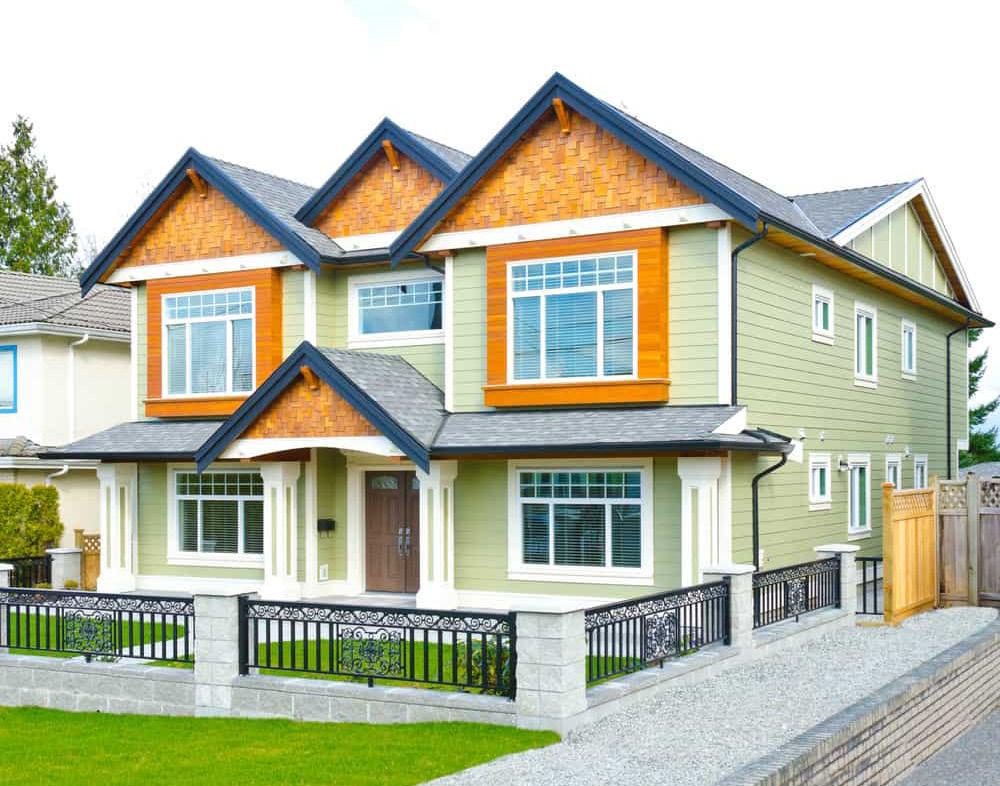
OT Sustainable Homes is transforming the landscape of affordable housing in emerging markets with a bold, innovative approach. The company, founded by Anthony Oyoo Odero, is on a mission to provide low-cost, sustainable 3D-printed homes to those in need. As I sat down with Anthony to discuss his vision, it became clear that his passion for addressing housing shortages is deeply rooted in both personal experience and a commitment to sustainable development.
“Growing up, I saw firsthand the challenges that come with inadequate housing,” Anthony shared, his voice resonating with sincerity. “In many emerging markets, people are forced to live in substandard conditions because they simply can’t afford anything better. OT Sustainable Homes was born out of a desire to change that.”
The concept behind OT Sustainable Homes is deceptively simple: design, manufacture, and install affordable homes using 3D printing technology. But the execution of this idea is nothing short of revolutionary. “3D printing allows us to build homes quickly, efficient-
ly, and with minimal waste,” Anthony explained. “It’s a game-changer for the construction industry, especially in regions where traditional building methods are either too expensive or too slow to meet the demand.”
Anthony’s journey into the world of 3D-printed homes began with a background in engineering and a passion for innovative solutions. “I was always fascinated by how technology could be used to solve real-world problems,” he said. “When I first learned about 3D printing, I immediately saw its potential to revolutionize housing, particularly in areas where people are struggling to find safe, affordable homes.”
OT Sustainable Homes focuses on creating housing solutions that are not only affordable but also environmentally friendly. “Sustainability is at the core of what we do,” Anthony emphasized. “The materials we use are chosen for their durability and low environmental impact, and the 3D printing process itself generates significantly less waste compared to traditional construction methods.”
One of the key advantages of 3D printing, according to Anthony, is its ability to drastically reduce construction time.
“We can build a home in a matter of days, as opposed to months,” he said. “This speed is crucial in areas where housing demand is high and resources are limited. Our goal is to make quality housing accessible to everyone, regardless of their financial situation.”
As our conversation continued, Anthony highlighted some of the unique challenges and opportunities that come with bringing 3D-printed homes to emerging markets. “One of the biggest challenges is convincing people that 3D-printed homes are not just a temporary solution but a viable, longterm option,” he admitted. “There’s still a lot of scepticism, especially in regions where traditional building methods have been used for generations.”
To overcome these challenges, OT Sustainable Homes places a strong emphasis on education and community engagement. “We work closely with local communities to ensure that they understand the benefits of 3D-printed homes and feel confident in their durability and safety,” Anthony explained.
“It’s important to us that people see these homes as not just affordable, but also as something they can be proud of.”
Another key aspect of OT Sustainable Homes’ approach is its adaptability. “Every community has different needs and challenges,” Anthony noted. “We’ve designed our homes to be customizable, so they can be adapted to different environments, climates, and cultural preferences. This flexibility is one of the reasons why our solutions are so effective in a wide range of settings.”
Looking ahead, Anthony has ambitious plans for the future of OT Sustainable Homes. “We’re currently focused on expanding our operations to more countries and regions,” he said. “Our goal is to have a global impact, providing affordable, sustainable housing to as many people as possible.”

“Switching to digital business cards is a small change that can have a big impact,” he says. “Not only do you never have to worry about running out of cards, but you’re also contributing to a healthier planet by reducing paper consumption and waste. It’s a win-win situation.”

In a rapidly evolving digital world, traditional paper business cards are becoming relics of the past. Leading the charge into the future of networking is TapToCard, a Dubai-based company that is reinventing the way professionals connect and share information. Founded in 2021, TapToCard offers a smart, sustainable alternative to paper business cards, utilizing Near Field Communication (NFC) technology to make contact sharing seamless, efficient, and eco-friendly.
To delve deeper into the journey of TapToCard, I sat down with the company’s dynamic founder, Sarthak Sethi, a seasoned entrepreneur and TEDx speaker. His passion for innovation and sustainability is evident from the moment we start talking. “TapToCard was born out of a desire to merge convenience with sustainability,” Sethi explains. “The pandemic showed us how important it is to rethink traditional methods of networking. We needed a solution that was not only safe and contactless but also aligned with the growing global emphasis on reducing waste.”
The concept behind TapToCard is simple yet transformative. Users can transfer their contact details, social media profiles, and much more to any smartphone with just a tap. Unlike paper business cards, which often end up discarded or forgotten, TapToCard’s digital format ensures that your information is stored securely and can be easily accessed when needed.
“What sets TapToCard apart,” Sethi continues, “is its versatility and ease of use. There’s no need for the recipient to download any apps or perform complicated steps. All they need is a smartphone, and with one tap, they have all the information they need.”
The platform supports both iOS and Android devices, making it accessible to virtually anyone. As businesses and individuals strive to reduce their environmental footprint, TapToCard’s digital business cards offer a compelling solution to the problem of paper waste. According to Sethi, this commitment to sustainability is a core principle of the company.
The environmental benefits of TapToCard are clear, but the platform also brings significant advantages in terms of functionality and networking efficiency. Traditional business cards are static and often limited to basic contact information. In contrast, TapToCard allows users to share a wealth of information, including websites, LinkedIn profiles, and other social media accounts, all in a single tap.
“Networking is about more than just exchanging phone numbers or email addresses,” Sethi points out. “It’s about making meaningful connections, and with TapToCard, you can share a more complete picture of who you are and what you do.”
As our conversation unfolds, it becomes clear that TapToCard is not just a business venture for Sethi, but a personal mission to drive change. He envisions a future where digital business cards become the norm, and where sustainable practices are integrated into every aspect of professional life.
“Adopting TapToCard is a step toward embracing the future,” he says with conviction. “We’re not just changing how people network; we’re also encouraging them to think differently about sustainability and technology. Our goal is to make digital business cards the standard in professional
The response to TapToCard has been overwhelmingly positive. Early adopters have praised the platform for its user-friendly design, environmental benefits, and the way it seamlessly integrates into modern business practices. As more companies and professionals recognize the advantages of going digital, TapToCard is poised to lead the charge in this new era of networking.

frameworks. This all-in-one solution is not only practical but also scalable, making it suitable for businesses of all sizes and industries.
“One of the key advantages of our platform is its ability to integrate seamlessly with existing business operations,” said Tripathi. “We understand that sustainability needs to be embedded into the core of a business to be truly effective. That’s why we’ve designed Zero to be intuitive and easy to use, allowing companies to manage their carbon footprint with minimal disruption to their daily activities.”
In the face of accelerating climate change, businesses around the world are under increasing pressure to adopt sustainable practices. Olive Gaea FZCO, a leading Dubai-based Sustainability as a Service (SaaS) platform, is at the forefront of this movement, providing innovative solutions for carbon accounting, decarbonization, and achieving Net Zero emissions. At the helm of this forward-thinking company is Vivek Tripathi, a strategic thinker with over 17 years of global business leadership experience.
In a recent conversation with Tripathi, his commitment to environmental stewardship and business innovation was immediately evident. “Our mission at Olive Gaea is to empower businesses to take real, science-based climate action,” Tripathi explained. “We are not just providing a service, we are enabling a movement towards a more sustainable and carbon-neutral future.”
Founded on the principle that technology can be a powerful tool for environmental change, Olive Gaea offers a comprehensive range of services
designed to address the complex challenges of sustainability. From greenhouse gas (GHG) emissions accounting and reduction strategies to carbon offsetting and life cycle analysis, Olive Gaea’s offerings are tailored to meet the unique needs of each client.
Central to Olive Gaea’s suite of services is their Carbon Management and Accounting Platform (CMAP) called “Zero.” This cutting-edge platform leverages advanced technology and artificial intelligence to simplify and streamline the entire process of carbon management. “With Zero, businesses can easily measure, reduce, offset, and report their carbon footprint,” Tripathi explained. “Our platform is designed to alleviate the challenges companies face in managing their environmental impact, enabling them to focus on meaningful climate action.”
The Zero platform’s capabilities are extensive. It enables data collection and analysis, emissions projection, decarbonization pathway mapping, and carbon offsetting, all while ensuring compliance with global standards and
In addition to the CMAP platform, Olive Gaea offers carbon-neutral API solutions that enable e-commerce and logistics companies to provide carbon-neutral delivery options to their customers. This feature is particularly relevant in today’s marketplace, where consumers are increasingly demanding environmentally responsible products and services. “Our API solutions make it easy for companies to offer carbon-neutral deliveries, meeting consumer expectations while reducing their environmental impact,” Tripathi noted.
Olive Gaea’s approach goes beyond mere compliance, it is about creating a competitive advantage for businesses in a rapidly changing world. “Sustainability is no longer just a ‘nice-to-have’, it’s a business imperative,” Tripathi emphasized. “Companies that fail to address their carbon footprint risk falling behind, both in terms of regulatory compliance and consumer preference.”
The impact of Olive Gaea’s work is already being felt across the Middle East and beyond. With a growing client base that includes some of the region’s leading companies, Olive Gaea is helping to drive a cultural shift towards sustainability. “We are proud to be based in Dubai, a city that is quickly becoming a hub for innovation and sustainability,” Tripathi said. “Our goal is to position the UAE at the forefront of the global sustainability movement.”


In the bustling retail world, where efficiency and turnover are paramount, the issue of food waste has become an increasingly pressing concern. Supermarkets and grocery stores frequently discard perfectly edible food items as they near their “best by” dates, leading to significant waste. Recognizing the need for change, BestBy, an innovative Abu Dhabi-based startup, is tackling this problem head-on. The company’s CEO, Sabira Huda, is on a mission to reduce food waste and promote sustainability through a unique digital platform.
In a recent conversation, Sabira Huda explained the vision behind BestBy: “Our platform is designed to bridge the gap between consumers and retailers by offering food items nearing their best-by dates at discounted prices. This not only helps reduce food waste but also benefits consumers and retailers alike.”
BestBy operates on a simple yet effective model. Food items that are approaching their best-by dates are often removed from store shelves
to make way for fresher stock. While these products are still perfectly safe to consume, they are usually destined for landfills, contributing to the growing problem of food waste. BestBy seeks to disrupt this cycle by giving these items a second chance.
Huda, who has a background in Civil and Environmental Engineering from the University of Sharjah, was inspired to create BestBy after witnessing the sheer volume of food waste generated by retail stores. “It was shocking to see how much food was being discarded simply because it was close to its bestby date. I realized there had to be a better way to handle this,” she shared.
The BestBy platform works by allowing retailers to list products that are nearing their best-by dates, which consumers can then purchase at a reduced price. This creates a win-win scenario: consumers save money on their grocery bills, retailers make a profit on items that would otherwise be wasted, and most importantly, food is saved from being thrown away. The platform is user-friendly, with a straightforward
interface that allows consumers to easily browse available products and make purchases.
Huda is particularly passionate about the environmental impact of her venture. “Food waste is a major contributor to greenhouse gas emissions, particularly methane, which is released when food decomposes in landfills,” she explained. “By reducing the amount of food that goes to waste, we’re not only saving resources but also helping to mitigate climate change.”
BestBy also supports local communities by offering an affordable option for consumers who may be struggling with the rising cost of living. “We’re making it easier for people to access nutritious food at a lower cost,” Huda said. “It’s a small but important step towards greater food security.”
In addition to benefiting consumers and the environment, BestBy provides a practical solution for retailers who are increasingly being held accountable for their environmental practices. With sustainability becoming a key focus for businesses around the world, BestBy offers a way for retailers to enhance their corporate social responsibility efforts. “Retailers are under pressure to reduce waste and operate more sustainably,” Huda noted. “BestBy gives them a tool to do just that, while still maintaining profitability.”
As BestBy continues to grow, Huda envisions expanding the platform to include partnerships with restaurants and cafes, further broadening its impact on reducing food waste. “There’s so much potential to scale this concept,” she said. “Our goal is to create a comprehensive ecosystem where food waste is minimized across the entire supply chain.”
Despite the challenges of launching a startup in a competitive market, Huda remains optimistic about the future of BestBy. “We’ve had an incredible response from both consumers and retailers who are excited about the idea of reducing food waste,” she shared.


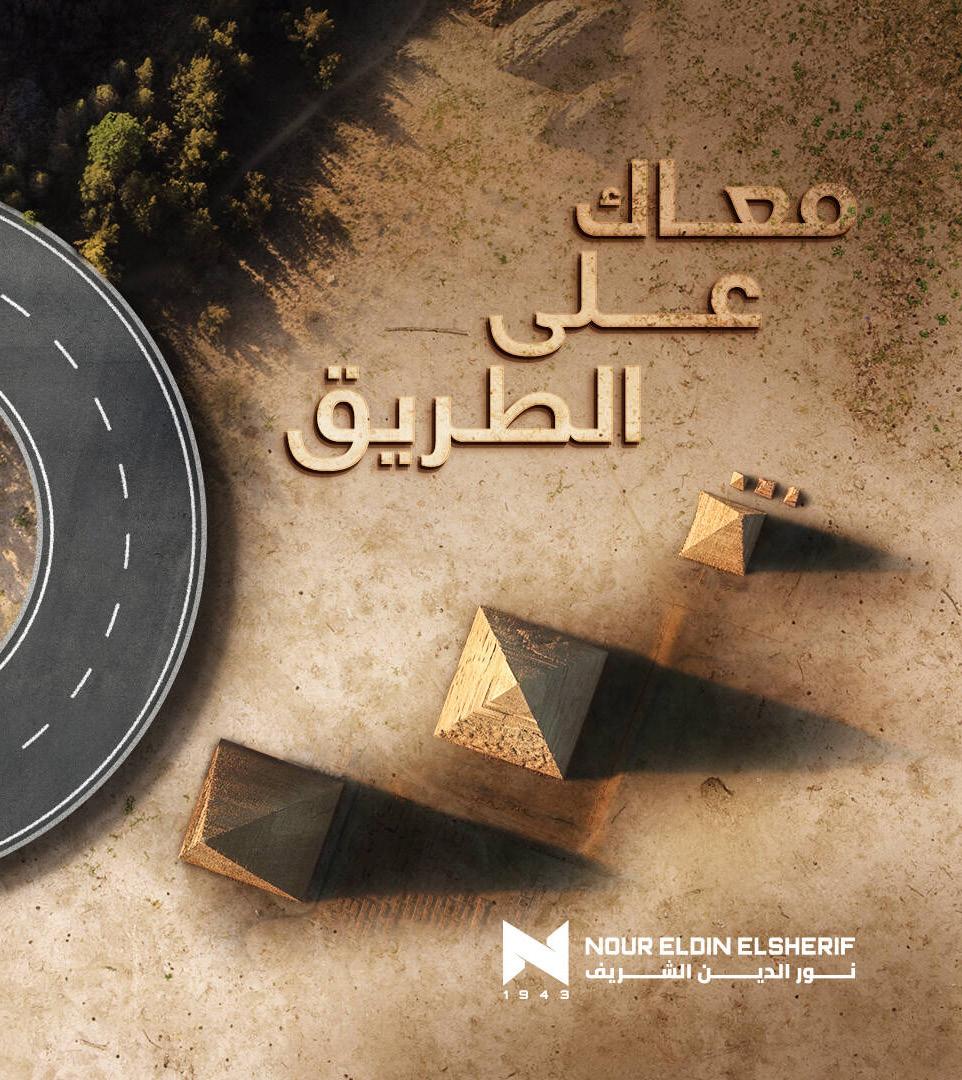

In the 21st century, the global conversation about health and sustainability has become more intertwined than ever. The intersection of human health and sustainability represents a holistic approach to well-being, where the focus is not only on individual health but also on the environmental, social, and economic factors that contribute to it. As we navigate through an era of unprecedented challenges, from climate change to public health crises, it is essential to explore how sustainability can shape a new paradigm of wellness. This article delves into the intricate relationship between human health and sustainability, highlighting the importance of adopting sustainable practices in healthcare, promoting environmental health, and fostering a new era of wellness.
The concept of sustainability, traditionally associated with environmental conservation, has evolved to encompass a broader spectrum that includes social equity, economic stability, and, critically, human health. Sustainability in healthcare and health promotion emphasizes a balance between meeting current health needs and ensuring that future generations can thrive in a healthy environment.
Sustainable healthcare focuses on reducing the ecological footprint of the healthcare system. This includes minimizing waste, reducing energy consumption, and promoting the use of renewable resources. By adopting sustainable practices, healthcare providers can reduce their environmental impact while also improving patient outcomes and reducing costs. For example, hospitals that implement energy-efficient systems and reduce waste not only contribute to environmental conservation but also create healthier indoor environments for patients and staff.
Moreover, sustainable healthcare emphasizes the importance of preventive care and health promotion. By addressing the root
causes of health problems, such as poor nutrition, lack of physical activity, and exposure to environmental toxins, sustainable healthcare can help prevent chronic diseases and reduce the need for costly medical interventions. This approach not only improves individual health but also reduces the overall demand on healthcare systems, making them more sustainable in the long run.
The environment plays a pivotal role in determining the health of populations. Air and water pollution, deforestation, and climate change are just a few of the environmental factors that can have profound impacts on human health. The World Health Organization (WHO) estimates that approximately 24% of global deaths are linked to environmental factors. This staggering statistic underscores the need for sustainable practices that protect both the planet and human health.
Air pollution, for example, is a major contributor to respiratory and cardiovascular diseases. Cities around the world are grappling with the consequences of poor air quality,
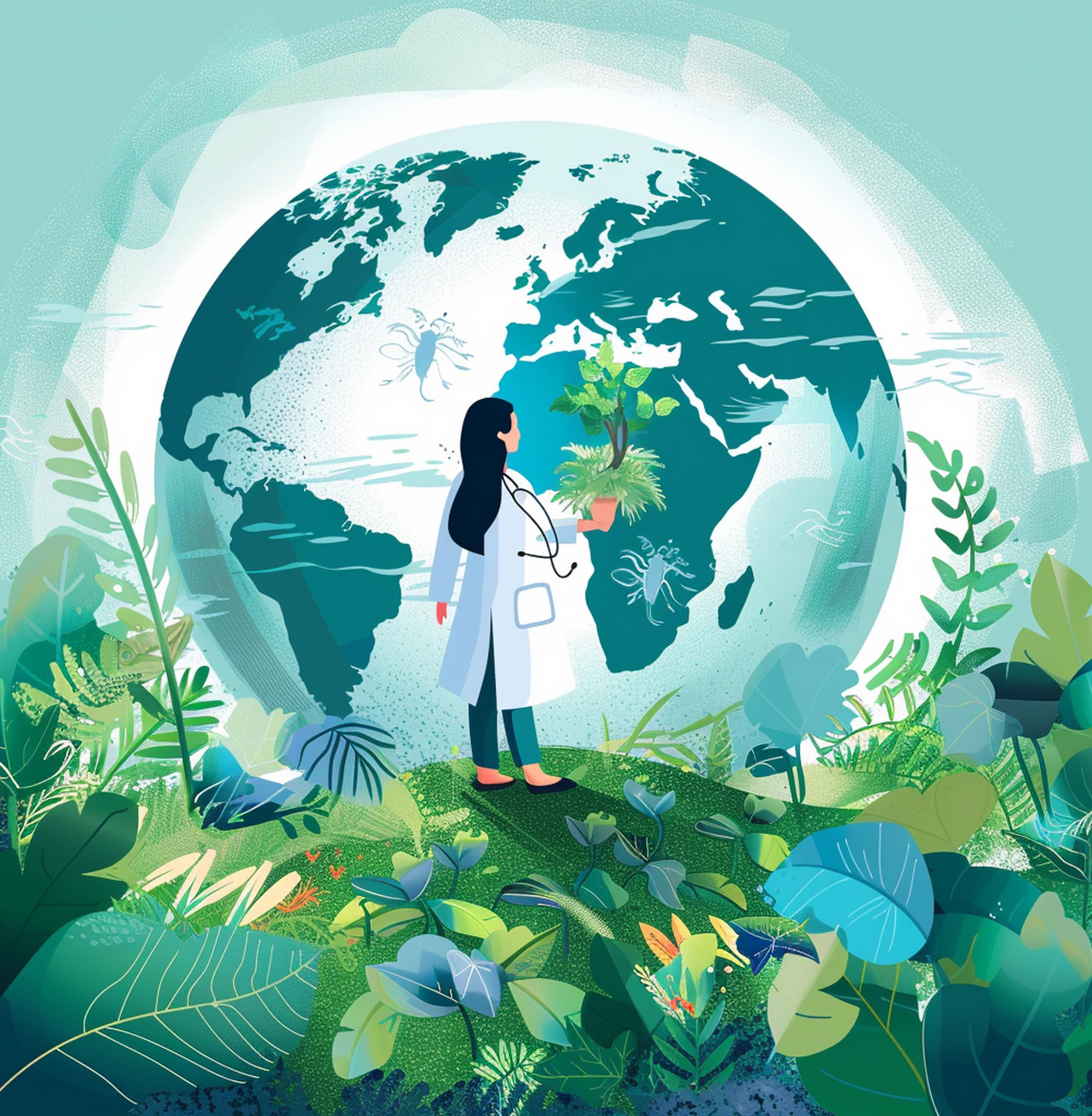
which is exacerbated by industrial emissions, vehicle exhaust, and deforestation. Sustainable urban planning, which includes the creation of green spaces, the promotion of public transportation, and the reduction of emissions, is crucial in mitigating the health impacts of air pollution.
Water pollution is another significant environmental health issue. Contaminated water sources can lead to a range of diseases, from cholera to lead poisoning. Ensuring access to clean water and proper sanitation is a fundamental aspect of health sustainability. This involves not only protecting water sources from pollution but also promoting sustainable water use and management practices.
Climate change, often described as the greatest public health threat of the 21st century, is another critical factor that links human health and sustainability. The effects of climate change, including more frequent and severe heat waves, storms, and floods, are already impacting health outcomes. For example, rising temperatures increase the risk of heat-related illnesses and exacerbate chronic conditions like asthma. Sustainable practices that reduce greenhouse gas emissions and promote climate resilience are essential for protecting public health in the face of climate change.
Food systems are a critical component of the intersection between human health and sustainability. The way food is produced, distributed, and consumed has significant implications for both the environment and public health. Industrial agriculture, which relies heavily on synthetic fertilizers, pesticides, and fossil fuels, contributes to environmental degradation and climate change. At the same time, it produces food that is often unhealthy, contributing to the global rise in obesity, diabetes, and other diet-related diseases. A
can promote better health outcomes while also protecting the environment. This includes supporting organic and regenerative farming practices that restore soil health, conserve water, and reduce greenhouse gas emissions. Sustainable diets, which emphasize plant-based foods and reduce the consumption of processed and animal-based products, can also contribute to better health outcomes. For example, the EAT-Lancet Commission’s planetary health diet, which recommends a primarily plant-based diet, has been shown to reduce the risk of chronic diseases while also being more environmentally sustainable.
Moreover, sustainable food systems can help address social inequalities in health. In many parts of the world, access to healthy, nutritious food is limited by factors such as poverty, food deserts, and lack of education. By promoting local food systems, improving food distribution networks, and supporting food education programs, we can create a more equitable and sustainable food system that benefits everyone.
Social determinants of health, such as income, education, and housing, are deeply connected to sustainability. Economic inequality, for instance, can limit access to healthcare, nutritious food, and safe living environments. Addressing these social determinants is essential for promoting both health and sustainability.
Sustainable development goals (SDGs), as outlined by the United Nations, emphasize the need to address these social determinants through policies that promote equity and social justice. By creating opportunities for education, employment, and access to healthcare, we can reduce health disparities and create more sustainable communities.
For example, improving access to affordable housing can reduce the health risks associated with poor living conditions, such as exposure to mold and lead. Similarly, providing access to quality education can empower individuals to make informed choices about their health and well-being. These efforts not only improve individual health outcomes but also contribute to the overall sustainability of communities.
Innovation is key to advancing the intersection of human health and sustainability. Technological advancements, such as telemedicine, wearable health devices, and electronic health records, are transforming healthcare by making it more efficient and accessible. These innovations can also reduce the environmental impact of healthcare by minimizing the need for physical infra-



structure and reducing energy consumption.
Telemedicine, for example, allows patients to receive care remotely, reducing the need for travel and the associated carbon emissions. Wearable health devices can monitor patients’ health in real-time, allowing for early intervention and reducing the need for more intensive medical treatments. Electronic health records streamline healthcare processes, reducing paper waste and improving the efficiency of care.
Moreover, sustainable healthcare practices are being integrated into the design and construction of healthcare facilities. Green building practices, such as the use of energy-efficient materials, renewable energy sources, and sustainable water management systems, are becoming more common in healthcare construction. These practices not only re-
duce the environmental impact of healthcare facilities but also create healthier environments for patients and staff.
The intersection of human health and sustainability represents a new era of wellness, where the well-being of individuals, communities, and the planet are interconnected. By adopting sustainable practices in healthcare, promoting environmental health, and addressing social determinants of health, we can create a more equitable and sustainable world. As we face the challenges of the 21st century, from climate change to public health crises, it is essential to recognize that sustainability is not just an environmental issue but a fundamental aspect of human health and well-being. By embracing this holistic approach to health, we can build a future that is not only healthier but also more resilient and sustainable for generations to come.


The Rise of ESG Investing
In recent years, Environmental, Social, and Governance (ESG) investing has emerged as a transformative force in the world of finance. ESG investing, which integrates environmental stewardship, social responsibility, and strong governance practices into investment decisions, is reshaping how investors allocate capital and how companies operate. This article explores the rise of ESG investing, its impact on the financial industry, and its implications for the future of finance.
ESG investing focuses on evaluating investments not just on traditional financial metrics but also on how companies perform regarding environmental sustainability, social responsibility, and governance practices. Environmental criteria assess how a company manages risks and opportunities related to environmental issues like climate change, resource depletion, and waste. Social criteria examine how a company manages relationships with employees, suppliers, customers, and communities. Governance criteria look at a company’s leadership, executive pay, audits, and shareholder rights.
The growing importance of ESG factors is driven by increasing awareness of global challenges such as climate change, social inequality, and corporate malfeasance. Investors are no longer solely concerned with maximizing returns but are also interested in how their investments contribute to broader societal goals. This shift reflects a broader trend towards sustainable and responsible investing, driven by both individual and institutional investors.
The rise of ESG investing has significant implications for financial markets and corporate behavior.

Navigate your financial journey with purpose, from managing daily expenses to securing future dreams “

• Investment Flows and Performance:
ESG investing has seen substantial growth in recent years, with trillions of dollars in assets now managed under ESG criteria. This surge in interest has led to a proliferation of ESG-focused funds, indices, and investment products. Studies have shown that companies with strong ESG performance often exhibit lower risk profiles and can deliver competitive financial returns over the long term. For example, firms with robust environmental practices tend to face fewer regulatory fines and operational disruptions, leading to more stable financial performance.
• Corporate Accountability and Transparency: As investors increasingly demand transparency and accountability on ESG issues, companies are being pressured to improve their practices. This has led to greater disclosure of ESG metrics and performance, pushing companies to adopt more sustainable and socially responsible practices. Companies are now more likely to re-

port on their carbon footprints, diversity and inclusion efforts, and governance structures. This increased transparency helps investors make informed decisions and holds companies accountable for their ESG impacts.
• Regulatory Developments: Governments and regulatory bodies are also playing a role in shaping the ESG landscape. Regulations and guidelines are being introduced to standardize ESG reporting and enhance the quality of ESG disclosures. For example, the European Union’s Sustainable Finance Disclosure Regulation (SFDR) and the Global Reporting Initiative (GRI) provide frameworks for companies to report on their ESG performance. Such regulations help ensure that ESG investing is not just a marketing tool but is grounded in credible and comparable data.
While ESG investing presents many oppor-
tunities, it is not without its challenges and criticisms.
• Greenwashing: One of the significant concerns in ESG investing is the issue of greenwashing. Greenwashing occurs when companies present themselves as more environmentally friendly or socially responsible than they are in reality. This can mislead investors and undermine the credibility of ESG investing. To combat greenwashing, investors and regulators are calling for stricter standards and more rigorous verification processes for ESG claims.
• Lack of Standardization: The lack of standardized metrics and frameworks for ESG reporting can make it challenging for investors to compare and evaluate ESG performance across companies. Different organizations and jurisdictions use varying criteria and methods for assessing ESG factors, leading to inconsistencies and potential confusion. Efforts are underway to create more standardized ESG reporting
frameworks, but achieving global consensus remains a work in progress.
• Balancing Financial and ESG Goals: Investors must balance financial returns with ESG objectives, which can sometimes lead to tensions between shortterm profitability and long-term sustainability. While many studies suggest that strong ESG practices can lead to better financial performance over the long term, investors may face challenges in reconciling immediate financial goals with broader ESG ambitions.
The future of ESG investing looks promising, with several trends likely to shape its evolution.
• Integration into Mainstream Investing: ESG investing is expected to become increasingly integrated into mainstream investment strategies. As more investors recognize the value of incorporating ESG factors into their decision-making processes, ESG criteria will become a standard consideration in investment analysis and portfolio management.
• Technological Innovations: Advances in technology, such as artificial intelligence and big data analytics, will enhance ESG data collection and analysis. These innovations will improve the accuracy and efficiency of ESG assessments, enabling investors to make more informed decisions and companies to better track and report their ESG performance.
• Broader Adoption: The adoption of ESG investing is likely to expand beyond traditional asset classes and geographies. Emerging markets and alternative investment opportunities will increasingly incorporate ESG criteria, broadening the reach and impact of sustainable investing practices.
The rise of ESG investing represents a fundamental shift in how finance operates and how capital is allocated. By incorporating environmental, social, and governance criteria into investment decisions, ESG investing aligns financial goals with broader societal and environmental objectives. While challenges remain, the growing focus on sustainability and responsible investing is poised to drive positive change in both financial markets and corporate practices. As the landscape of ESG investing continues to evolve, it promises to play a crucial role in shaping a more sustainable and equitable future.
